|
Jewish Holiday Calendar
Note: For January site updates, please scroll past this entry....
The winter holidays (חגי החורף) remember special times when God acted on behalf of His people so that they would triumph over their enemies, and therefore they prophetically picture the final victory in the world to come.
The Winter Holidays:

Note that in accordance with tradition, the following holiday dates begin at sundown:
- Month of Kislev (Sat., Nov. 2nd, 2013)
- Four Sabbaths: Vayetzei, Vayishlach, Vayeshev, Miketz
- Dates for Chanukah (Nov. 27th to Dec. 5th):
- 1st candle: Wednesday, Nov. 27 [Kislev 25]
- 2nd candle: Thursday, Nov. 28th [Thanksgiving Day - US]
- 3rd candle: Friday, Nov. 29th [Shabbat Miketz]
- 4th candle: Saturday, Nov. 30th
- 5th candle: Sunday, Dec. 1st
- 6th candle: Monday, Dec. 2nd
- 7th candle: Tuesday, Dec. 3rd
- 8th candle: Wednesday, Dec. 4th [Zot Chanukah]
- Month of Tevet (Mon., Dec. 2nd, 2013)
- Five Sabbaths: Miketz, Vayigash, Vayechi, Shemot, Vaera
- Zot Chanukah - Last day of Chanukah (Wed. Dec. 4th -Tevet 2)
- Asarah B'Tevet - Fast over seige of Jerusalem (Fri. Dec. 13th)
- Christmas: Wed. Dec. 25th (22nd of Tevet)
- Month of Shevat (Wed., Jan. 1st, 2014)
- Month of Adar I (Thur., Jan. 30th, 2014)
- Month of Adar II (Sat., March 1st, 2014)
- Four Sabbaths: Vayikra, Tzav (Zachor), Shemini (Parah), Tazria (Ha'chodesh)
- Ta'anit Esther - the fast of Esther (Thur. March 13th)
- Purim - The Festival of Lots (Sat. March 15th) [14th of Adar II]
- Shushan Purim - Purim in Israel (Sun. March 16th) [15th of Adar II]
 |
January 2014 Updates
End to Our Darkness...
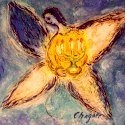
01.31.14 (Adar 1, 5774) In our struggle against the darkness, there is good end coming, so don't let your heart grow numb. Never give up hope. The Spirit says: "Be silent before the LORD and wait patiently for him; do not burn with anger over the one who prospers in his way, over the man who carries out evil schemes. Abandon your anger and forsake your rage. Do not burn with anger: it tends only to distress. For the evildoers shall be cut off, but those who keep hope in the LORD shall inherit the land. In just a little while, the wicked will be no more; though you look carefully at his place, he will not be there" (Psalm 37:7-10).
וְעוֹד מְעַט וְאֵין רָשָׁע
וְהִתְבּוֹנַנְתָּ עַל־מְקוֹמוֹ וְאֵינֶנּוּ
ve·od · me·at · ve·ein · ra·sha
ve·hit·bo·nan·ta · al · me·ko·mo · ve·ei·ne·nu

"In just a little while, the wicked will be no more;
though you look carefully at his place, he will not be there."
(Psalm 37:10)

Just a little longer (od me'at) and there will be no wicked one (ve'ein rasha). Soon God will utterly vanquish wickedness, though in the present hour such hope might seem distant and far away. Stay strong in your desire for God's Name to be vindicated, for righteousness and love to shine as the noonday. Take hold of this vision through tevunah (understanding), and contemplate that there will be "no place" for the wicked one: wickedness itself will be driven away like dissipating smoke. Moreover, it is not only the wicked of this world, but our own inner wickedness that will find no place, for in the world to come we will be free from not only sin's influence but also sin's presence within our own hearts... Maranatha!
Shadows and Substance....

[ The following is related to this week's Torah reading, parashat Terumah... ]
01.31.14 (Shevat 30, 5774) Though Moses was instructed to make the Tabernacle according to the "pattern" revealed at Sinai (Exod. 25:9,40), King David -- by direct revelation of the Holy Spirit -- later changed the size of the Tabernacle and its vessels, made additions to the original design, and even changed the priestly order of service itself (see 1 Chron. 28:11-20). King David's vision shows us that both the structure and service of the Tabernacle were provisionally intended to give physical expression to a deeper spiritual reality, and indeed the New Testament calls the service of the Temple "a copy and shadow (ὑποδείγματι καὶ σκιᾷ) of the heavenly things" (Heb. 8:5). But what were these heavenly things if not the ministry of Yeshua as our High Priest of the New Covenant? The New Covenant (בְּרִית חֲדָשָׁה) is called a "better covenant based on better promises" (Heb. 8:6), that was "not like the covenant that I made with their fathers on the day when I took them by the hand to bring them out of the land of Egypt" (see Jer. 31:31-33). Our Scriptures comment: "In speaking of a new covenant, he has made the first one obsolete, and what is becoming obsolete and growing old is ready to vanish away" (Heb. 8:13). Likewise we read, "When Messiah appeared as high priest of the good things that have come, then through the greater and more perfect tabernacle (not made with hands, that is, not of this creation), he entered once for all into the holy places, not by means of the blood of goats and calves but by means of his own blood, thus securing an eternal redemption" (Heb. 9:11-12). The earlier Levitical priesthood and its sacrificial system was "a shadow (σκιᾷ) of the good things to come, and not the true form (i.e., substance) of these realities" (Heb. 10:1).
Moses was at first commanded, "Follow the pattern of the vision..." (Exod. 25:40); King David later instructed his son regarding the inspiration for the Holy Temple, "do the work according to the revealed plan..." (1 Chron. 28:19); but Yeshua our LORD declared: "The One greater than the Temple is here" (Matt. 12:6).
"And they came to Jerusalem. And He entered the Temple and began to drive out those who sold and those who bought in the Temple, and he overturned the tables of the money-changers and the seats of those who sold doves. And he would not allow anyone to carry any vessel through the Temple" (Mark 11:15-16).
Note that during this "cleansing of the Temple," Yeshua actually stopped the performance of the priestly duties: he "would not allow anyone to carry any vessel through the Temple," which included the sacrificial vessels used for the priestly avodah itself....
A principle of valid interpretation is that "a text without a context is a pretext." Therefore it is important to remember to carefully study the Torah of Moses, the prophets, and the Writings, since without the Tanakh (i.e., the "Old Testament") the new covenant scriptures are without context (1 Cor. 10:6; 2 Tim. 2:15, etc.). Moreover, Yeshua himself said: "Search the Scriptures, for in them you think you have eternal life, yet these very Scriptures testify of me" (John 5:39). Indeed Yeshua preached that he came to fulfill the true purpose of the law (Matt. 5:17-19), and to his disciples he interpreted that fulfillment: "And beginning with Moses and all the Prophets, he interpreted to them in all the Scriptures the things concerning himself.... "Then he said to them, 'These are my words that I spoke to you while I was still with you, that everything written about me in the Law of Moses and the Prophets and the Psalms must be fulfilled.' And then he opened their minds to understand the Scriptures" (Luke 24:27,44-45). The New Testament itself assumes that followers of Yeshua would be study and be familiar with the Hebrew Scriptures. When Paul wrote, "All Scripture is breathed out by God and profitable for teaching, for reproof, for correction, and for training in righteousness" (2 Tim. 3:16), he was referring to the Jewish Bible, since the New Testament writings had not yet been compiled.
As for the moral aspect of the law, however, the Torah of Yeshua is superior to that of the lawcode of Moses (especially as it was interpreted by the Pharisees), since Yeshua constantly focused on the heart and its inner motivations... That's the essential point of the Sermon on the Mount and the description of the law's true requirement (see Matt. 5:21-48). Notice how Yeshua quotes from the law and then moves it "inward," to be about the heart rather than mere external conformity. The deepest point, however, is that Yeshua is the Substance of the Temple and its fullest expression. There is an altar wherein those who serve under the Levitical system of worship have no right to eat (Heb. 13:10).
 |
From You we Give...
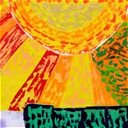
01.31.14 (Shevat 30, 5774) If God asks us to give, then know that He is assuredly a Giver; if he appeals for our heart, then know He is assuredly a Lover; and if he asks us to listen (shema), then know he heeds our hearts in return. Everything belongs to Him; and all that you ever experience comes from his gracious hand: "For from him and through him and to him are all things. To him be glory forever. Amen" (Rom. 11:36). When we give to God, we are like a child giving his parents a present, purchased, however, with what the child has received from his parents: As David said, "But who am I, and what is my people, that we should be able thus to offer willingly? For all things come from You (כִּי־מִמְּךָ הַכּל), and from your hand we give to you" (1 Chron. 29:14). Whatever we give for the sake of love always returns to us in grace. This is the meaning of the verse, "to you, O Lord, is lovingkindness; for you reward each according to his work" (Psalm 62:12).
Half-Cubits and Mystery...

[ The following is related to this week's Torah reading, parashat Terumah... ]
01.31.14 (Shevat 30, 5774) The Ark's dimensions were given in fractional measurements, "half-cubits" used to describe its length, width, and height: "They shall make an ark of acacia wood (עֲצֵי שִׁטִּים). Two cubits and a half (וָחֵצִי) shall be its length, a cubit and a half its breadth, and a cubit and a half its height" (Exod. 25:10). The sages comment that the "half-cubit" is symbolic of our fractional understanding, alluding to mystery and even paradox. "You shall overlay it with pure gold, inside and outside shall you overlay it, and you shall make on it a crown of gold (זֵר זָהָב) around it" (Exod. 25:11). The heart of the Tabernacle held the law of God, a picture of Yeshua who bore the law of God within his heart (Matt. 5:17-18). And though the Ark was made of wood from the common thorntree, it was covered inside and out with pure gold and bore a "crown" where the sacrificial blood was offered for atonement, a picture of Yeshua who clothed himself in our humanity, bore the crown of thorns, and shed his blood for our eternal atonement (Heb. 9:12).
Note that the Hebrew text says "they shall make an ark of acacia wood" (Exod. 25:10). Unlike other furnishings of the Tabernacle that were made by Betzalel, the text uses the plural verb here: "they shall make an ark" (וְעָשׂוּ אֲרוֹן), which implies that every person had a part in upholding the Torah. More - each person had a part in the place of blood atonement offered upon the kapporet - the cover of the Ark - which again symbolizes that Yeshua offered his life for the sins of the whole world (1 John 2:2).
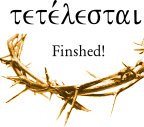 |
 |
First and last Word...
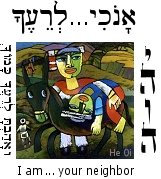
01.31.14 (Shevat 30, 5774) The traditional commentators often divide the Ten Commandments as those primarily between man and God (לָמָקוֹם) and those between man and his neighbor (לְחֲבֵרוֹ), but these are ultimately one and the same. To see this, note that the Commandments begin with the word anochi ("I AM") and end with le're'kha ("to/for your neighbor"). Joining these together says "I am your neighbor," indicating that the LORD Himself is found in your neighbor. The first and last word of the law of Moses, then, is simply "I AM your neighbor." Every social transgression is therefore a transgression against God, and vice-versa. As our Scriptures teach, "If anyone says, "I love God," and hates his brother, he is a liar," and "love fulfills the law" (1 John 4:20; Rom. 13:8). When we love our neighbor as ourselves (אָהַבְתָּ לְרֵעֲךָ כָּמוֹךָ), we are in effect showing love for the LORD.
Come as you are...
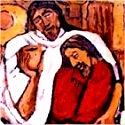
01.30.14 (Shevat 29, 5774) Yeshua says, "Come to me, all who labor and are heavy laden, and I will give you rest. Take my yoke upon you, and learn from me, for I am gentle and lowly in heart, and you will find rest for your souls" (Matt. 11:28-29). When he said, "Live in me, and I will live in you" (John 15:4), he didn't insist you first be found worthy or good; no, he set no other condition than that of trust: "Now are you clean through the word which I speak" (John 15:3). The separation is gone; God has made the way past your shame. You are invited to come, so come just as you are, come without delay, but come trusting that you are entirely welcome because of who Yeshua is and what he has done for you...
O Lord, help us to be in that life you so freely give.... help us to come.
Light of the Servant...

[ The following is related to this week's Torah reading, parashat Terumah... ]
01.30.14 (Shevat 29, 5774) The menorah (מְנוֹרָה) symbolizes light, growth, unity, and the Tree of Life (עֵץ הַחַיִּים). All its intricate parts (i.e., its seven branches with seven lamps, nine flower blooms, eleven fruits, and twenty two cups) were formed from a single piece of pure gold (זָהָב טָהוֹר) that was "beaten" or "hammered" into shape (Exod. 25:36). This is a symbol of the divine substance (gold has a hint of the color of blood combined with the pure white). Note further that the menorah sat upon a three-legged base - a hint of hashilush ha-kadosh (the triune nature of the Godhead that is the Root of all reality). This is another image of the concept of echdut - unity in plurality found in the Torah. Just as the many parts of the Mishkan were put together to form "one Tabernacle" (הַמִּשְׁכָּן אֶחָד), and the prophet Ezekiel was told to join together two sticks to form "one tree" (עֵץ אֶחָד, see Ezek. 37:17), so the many parts of the menorah were likewise fashioned to form "one menorah" (Exod. 25:36). Moreover, the Torah itself is made up of five separate Books, but it is nevertheless one Torah, just as the children of Israel were divided into Kohanim (priests), Levites, and Israelites, though together they form one nation... Yeshua likewise taught us there would be one flock formed from both Jews and Gentiles, having one Shepherd (John 10:16).
 |
The seven lamps of the menorah were lit daily, "from evening until morning," starting from the central lamp (the shamash) and then moving right to left (Exod. 27:21). According to the Talmud (Shabbat 22b), while all the lamps received the same amount of olive oil, the "westernmost" lamp (according to Rashi, the center lamp, due to its orientation) miraculously never ran out of oil, even though it was kindled first in the sequence. In other words, when Aaron would rekindle the lamps every evening, he found the shamash still burning, so he simply refilled it with oil and trimmed its wick. This miracle is also said to have occurred during the Temple period, though it abruptly ended about 40 years before the destruction of the Second Temple (c. 30 AD), after the death of Yeshua the Messiah, the true Servant and Branch of the LORD. As it is attested in the Talmud: "Our Rabbis taught: During the last forty years before the destruction of the Temple the lot ['For the Lord'] did not come up in the right hand; nor did the crimson-colored strap become white; nor did the westernmost light shine" (Yoma 39a).
The Scriptures declare that God is light, and Yeshua is the true Light of God (1 John 1:5; John 1:9). The light from the menorah reveals spiritual light. It was not seen from the outside of the Tabernacle, but only while inside the holy chamber, before the holy place of sacrificial atonement. The light itself came from the burning of pure and beaten olive oil - a symbol of anointing and the Holy Spirit (רוּחַ הַקּדֶשׁ). It enabled service to God to be performed, though it was not a light to be used for profane purposes. Notice that the six lamps faced the central lamp -- a picture of Yeshua, the Light of the World whose arms and legs were "hammered" for our sins.... He is the suffering servant (shamash) who lightens everyone in the world; He is the center, the supporting trunk for the other branches (John 15:5).
Note: For more on this fascinating subject, see "A Closer Look at the Menorah."
 |
Living in Perilous Times...
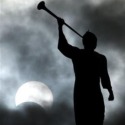
01.29.14 (Shevat 28, 5774) "Light has come into the world, but people love darkness rather than light, because their deeds are evil" (John 3:19). "For all who practice sin are the slaves of sin," made captive to the devil and to his will (John 8:34; 2 Tim. 2:26). Politicians may promise people "freedom," but they themselves are "slaves of corruption, for whatever overcomes a person, to that he is enslaved" (2 Pet. 2:19). Yeshua forewarned the moral depravity that would pervade mankind just before the time of his return: "Because lawlessness (i.e., ἀνομία, from -α ('not') + νομος, 'torah') will be increased," he said, "the love of many will grow cold (i.e., ψύχομαι, 'be extinguished')" (Matt. 24:12). Likewise the Apostle Paul forewarned: "But know this also, that in the last days perilous (χαλεποί) times shall come" (2 Tim. 3:1). Note that Paul used the same adjective to describe these times (i.e., χαλεπός, "perilous") that is used elsewhere to describe the fierce character of demonaics (Matt. 8:28). Indeed, the word "perilous" likely comes from a Greek verb (χαλάω) that means "to let down from a higher place to a lower," thereby creating a sort of spiritual "chasm" or rift, which again suggests that demonic activity will be increased upon the earth. Therefore, in light of the spiritual war that rages all around us, it is vital that we remain firmly rooted in what is real by taking hold of our identity and provision as children of God. As is written: "God has not given us the spirit of fear, but of power (δύναμις) and of love (ἀγάπη), and of a sound mind (σωφρονισμός), i.e., a "delivered" mind, a mind "healed" from carnal fears (2 Tim. 1:7). We are not to be troubled like the world that lives in terror of man, nor are we to crave vain "security" from the devices of political deceivers. No - we must look to God Almighty, the Master of the Universe. He alone is our Refuge and Defense, the One who gives us steadfast power and love in the midst of these storms.
We must stay vigilant, friends. "For you yourselves are fully aware that the Day of the LORD (יוֹם־יְהוָה) will come like a thief in the night" (see Matt. 24:42; 2 Pet. 3:10; Rev. 3:3; 16:15). While people are saying, "There is peace and security," then sudden destruction will come upon them as labor pains come upon a pregnant woman (i.e., the birthpangs of Mashiach: חֶבְלֵי מָשִׁיח), and they will not escape. But you are not in darkness, brothers, for that day to surprise you like a thief" (1 Thess. 5:2-4). Note that a characteristic of this season will be a emphasis on peace and "security," that is, setting up a ubiquitous surveillance and security grid to monitor and control people... In light of this, "let us not sleep, as others do, but let us keep awake and be sober.. having put on the breastplate of faith and love, and for a helmet the hope of salvation (ἐλπίδα σωτηρίας). For God has not destined us for wrath, but to obtain deliverance through our Lord Yeshua the Messiah" (1 Thess. 5:6-9).
Dear brothers and sisters, fear no one - no man, no devil, or any other thing - but only God, which is to say, be mindful of your own heart and the terrible risk of losing sight of God's wonder, love, and blessing... There is no terror in his love (1 John 4:18).
 |
The Heavenly Kapporet...
 |
[ The following is related to this week's Torah reading, parashat Terumah... ]
01.29.14 (Shevat 28, 5774) The word used in the ancient Greek Torah (i.e., the Septuagint) to translate the original Hebrew word kapporet (i.e., the "cover" or "crown" of the Ark of the Covenant) is hilasterios (ἱλαστήριος), the very same word used to describe the atonement secured at the cross of the Savior in the New Testament: "God put forward Yeshua as a propitiation (ἱλαστήριον) through faith in His blood" (Rom. 3:25). In other words, the shedding of Yeshua's blood - and His Passion upon the cross - was "presented" upon the Heavenly Kapporet, that is, before the Throne of God Himself, to make eternal atonement for our souls (Heb. 9:12). Yeshua is our great High Priest after the order of Malki-Tzedek (i.e., Melchizedek), the One who provides everlasting forgiveness for our sins (see Heb. 9:7-10:10). Because of His sacrifice, the parochet - the covering separating the Holy of Holies - was rent asunder and God's love was let loose upon the world!
Dear Lord, we plead your solution, your remedy, to the problem of our sin; we appeal to your compassion as the way to overcome our frailty, our self-imposed exile, our fear, and our inner sense of loss... Deliver us from whatever remains within us that hides, that denies, and that turns away from hope.... For the sake of your great love - your very passion that willingly bore our sin and shame so that we would be covered with your robes of kindness and acceptance - heal us, help us, and yield our hearts to you. We pray to You, trusting that your salvation is all we shall ever need. O LORD our God, see the life of Jesus you put within us; hear the voice of the Spirit you breathe into our hearts. Amen.
Note: For more on this, see "The Mercy Seat: Further Thoughts on Parashat Terumah."
Shadows and Substance...
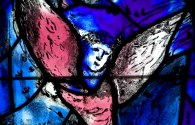
[ The following is related to this week's Torah reading, parashat Terumah... ]
01.29.14 (Shevat 28, 5774) The earthy Tabernacle and its furnishings were designed to be "signs" and "shadows" of heavenly realities (Heb. 8:5). Moses was repeatedly commanded to make the Sanctuary according to the "pattern" revealed at Sinai (Exod. 25:9,40). At the inmost center of the earthly Tabernacle, the place symbolizing utmost holiness, was the Ark of the Covenant (אֲרוֹן־הַקּדֶשׁ), a "three-in-one" box that held the tablets of the covenant. The Ark served as a symbol of kisei ha-kavod (כִּסֵּא הַכָּבוֹד), God's Throne of Glory, since it stood entirely apart as the only furnishing in the Holy of Holies (קדֶשׁ הַקֳּדָשִׁים). Upon the crown or cover of the Ark (i.e., the kapporet) were fashioned two cherubim (i.e., angel-like figures) that faced one another (Exod. 25:17-18). According to the Talmud (Succah 5b), each cherub had the face of a child - one boy and one girl - and their wings spread heavenward as their eyes gazed upon the cover (Exod. 25:20; 1 Pet. 1:12). It was here - in the midst of sacred innocence, humility, purity, and hope - that the sacrificial blood was offered to make atonement for our sins, and it was here where God's Voice would be heard (Exod. 25:22; Num. 7:89). In the very heart of the Sanctuary, then, we see the Word of God and the sacrficial blood, foreshadowing the glory of the eternal redemption secured by Yeshua. As is written in our Scriptures: "For Messiah has entered, not into holy places made with hands, which are representations (ἀντίτυπος) of the true things, but into heaven itself, now to appear in the presence of God on our behalf" (Heb. 9:24).
 |
Note: The Ark is described as a "three-in-one" box because it was a wooden one set inside a gold one, with another gold one set inside the wooden one -- three boxes made one. Metaphorically this symbolizes Yeshua's humanity (the wood, the Tree of Life) surrounded above and within by God the Father and the Ruach HaKodesh...
Sacrifice of Praise...

[ The following is related to this week's Torah reading, parashat Terumah... ]
01.28.14 (Shevat 27, 5774) The word "terumah" (תְּרוּמָה) literally means "uplifting," from a root that means "to raise up high" (רוּם) in offering to God. We are to offer up the "fruit of our lips" by praising and acknowledging the name Yeshua (Heb. 13:15), even though we understand that our words are inadequate to fully express the glory and wonder of God. The sages liken this to a child who grabs his father's face and pulls his beard in play. This gives delight to the father, though it may seem to lower his dignity. Similarly, our words of praise seemingly lower God to our level, yet they are nonetheless beloved by him. Therefore the offering, the "terumah," is received from "every man whose heart moves him" (Exod. 25:2). God elevates the words of our heart, our childlike heart of faith, as an offering to him. And just as terumah also was the portion taken from one's crops that sanctified the entire yield (Num. 15:21), so God blesses what we give to him, "good measure, pressed down, shaken together, running over, will be put into your lap" (Luke 6:38).
 |
Inside then Out...

[ The following is related to this week's Torah reading, parashat Terumah... ]
01.28.14 (Shevat 27, 5774) Our Torah portion this week describes how the Ark of the Covenant was to be overlaid in gold, both inside and out: "You shall overlay it (i.e., the acacia wood box) with pure gold, inside and outside shall you overlay it, and you shall make upon it a molding of gold around it" (Exod 25:11). Many comment that this teaches that our outer self must be of the same substance as our inner self, and vice-versa.
Tragically, the outer form of "religious life" can be used to hide the truth of who we really are on the inside. To find wholeheartedness, to be undivided within the heart, Yeshua admonished, "first clean the inside of the cup that the outside also may be clean" (Luke 23:26). But what does this mean? Aren't we supposed to obey God's commandments, to do good works, and thereby to "let our light shine" before men (Matt. 5:16)? Yes of course, though first of all you must know who you are; you must understand and emotionally accept that you are a beloved child of God, even one for whom Yeshua exchanged his very life... This is the great commandment, the shema of the inner heart - to heed the truth that God is your life, your breath, your love. This is the very core of your identity, your "sacred center," the hidden "you" that your heavenly Father sees in secret (Matt. 6:6). You must first obey this "Torah" before attempting to work out other questions of theology or religious practice in your life. This is what it means to first "clean the inside of the cup."
 |
Deeper Torah of Love...

01.28.14 (Shevat 27, 5774) The Kotzker Rebbe once said, "The prohibition against making idols includes the prohibition against making idols out of the commandments. We should never imagine that the whole purpose of the Torah is its outer form, but rather the inward meaning." Indeed, sacrificial blood was placed over the tablets of the law (i.e., the blood sprinkled on the kapporet, or the "crown" of the Ark) that represented God's forgiveness and atonement for sin. The life is "in the blood," which represents God's passion, the deepest truth of Torah. And this is the message of the gospel itself, of course, since the blood of Yeshua passionately shed for our sake has opened up a new and everlasting way for us to be rightly related to God (Heb. 9:12). As C.S. Lewis fictionally portrayed in the Chronicles of Narnia, after Aslan was slain on the Stone Table, it broke in two "from end to end," symbolizing the deeper Torah of God's love had rightfully satisfied the Torah of His justice.
חֶסֶד־וֶאֱמֶת נִפְגָּשׁוּ צֶדֶק וְשָׁלוֹם נָשָׁקוּ
che·sed ve·e·met nif·ga·shu, tze·dek ve·sha·lom na·sha·ku

"Love and truth have met, righteousness and peace have kissed."
(Psalm 85:10)

Download Study Card
Man prays to God, but to whom does God pray? For what does He pray? Or do you think that the Almighty has no desires of His own, no yearning of heart? The sages of the Talmud believed that God indeed addresses himself: Yehi ratzon milfanai, "May it be acceptable before me, may it be My will, that my compassion overcome my anger, and that it may prevail over my justice when my children appeal to me, so that I may deal with them in mercy and in love" (Berachot 6a). This is the deeper unity of the Name YHVH (יהוה), the Savior and LORD, revealed to Moses after the sin of the Golden Calf (Exod. 34:6-7), and this is the essential meaning of the cross of Yeshua, where the LORD passionately "prayed within Himself" so that His compassion would overcome His fearful judgment for our sins.
Only the cross allows God's righteousness and mercy to "kiss" (Psalm 85:10; 89:14); only the cross reveals the true Holy of Holies where the blood was placed over the Ark of the Law; only the cross intimates the Inner Sanctum of God's heart. Because of the cross, a holy God is able to truly love and help the trusting sinner (Rom. 3:26). It is written: "Righteousness and justice are the foundation of your throne (צֶדֶק וּמִשְׁפָּט מְכוֹן כִּסְאֶךָ); steadfast love and faithfulness go before you" (Psalm 89:14). Because of Yeshua, God is vindicated as entirely just - and the Justifier of those who trust in His redemptive love (Rom. 3:24-26). Yeshua is the prayer of God the Father's on behalf of His children...
The will of God - His heart's yearning and desire - is for his children to receive his love (2 Pet. 3:9; 1 Tim. 2:4; John 3:16; Ezek. 18:23). As Yeshua prayed, "Holy Father, keep them in your Name, which you have given me, that they may be one, even as we are one... I in them and you in me, that they may become perfectly one, so that the world may know that you sent me and loved them even as you loved me" (John 17:11,23). Yeshua died on the cross to bear the shame for your sins, to be sure, but he did this so that you could be accepted and securely loved forever.... It is the love of God that is the goal of all things, after all. When Yeshua cried out, "It is finished" and breathed his last breath as He died for our sins upon the cross, the greatest exhalation of the Spirit occurred, the greatest sigh, the greatest utterance was ever declared. The sacrificial death of Yeshua for our deliverance was God's final word of love breathed out to those who are trusting in Him.
 |
Kosher Giving...
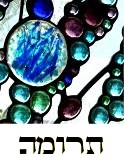
[ The following is related to this week's Torah reading, parashat Terumah... ]
01.28.14 (Shevat 27, 5774) Our Torah portion this week begins, "The LORD said to Moses, 'Speak to the people of Israel, that they take for me a contribution'" (Exod. 25:2). The great commentator Rashi notes the juxtaposition of this portion, which begins with the request for donating for the sanctuary, with the previous portion, Mishpatim, which focuses on social justice, to imply that offerings made to God are acceptable only if they are acquired honestly. God's house is built in love and truth (עוֹלָם חֶסֶד יִבָּנֶה), and never through exploiting others. As Yeshua said, "if you are offering your gift at the altar and there remember that your brother has something against you, leave your gift there before the altar and go. First be reconciled to your brother, and then come and offer your gift" (Matt. 5:23-24).
Appearance and Reality...
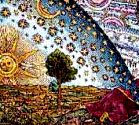
01.27.14 (Shevat 26, 5774) The Hebrew word for "world" or "age" is olam (עוֹלָם), which is derived from a root verb (עָלַם) that means "to conceal" or "to hide." God "hides" His face from us so that we will seek Him, and that means we must press through ambiguity to earnestly take hold of divine truth. Long before the time of the philosopher Plato, King David proclaimed that there was a "divided line" between the realm of the temporal world and realm of the hidden and eternal world. The temporal world is finite, subject to change, yet pointed beyond itself to an eternal world, which was the source of real significance, meaning, and life itself (2 Cor. 4:18). Therefore King David said, בַּקְּשׁוּ פָנָיו תָּמִיד/ bakeshu fanav tamid: "Seek His face continually" (Psalm 105:4). Note that the numerical value for the word "fanav" (i.e., "His face") is the same as that for the word "olam." When we truly seek God's face (i.e., His Presence) we are able to discern the underlying purpose for our lives.
דִּרְשׁוּ יְהוָה וְעֻזּוֹ
בַּקְּשׁוּ פָנָיו תָּמִיד
dir·shu · Adonai · ve·u·zo
ba·ke·shu · fa·nav · ta·mid

"Seek the LORD and his strength;
seek his presence continually."
(Psalm 105:4)
ζητήσατε τὸν κύριον καὶ κραταιώθητε
ζητήσατε τὸ πρόσωπον αὐτοῦ διὰ παντός

Note that the ancient Greek version of the Torah (i.e., the Septuagint) translates this verse as, "Seek the LORD and be strengthened; seek His face through everything (διὰ παντός)." Unlike Plato, however, who "saw through" the temporal world and regarded it as less than real, King David understood that how we live within the intersection of these two realms revealed our inner character of faith -- and therefore our ultimate destiny....
Water for the Thirsting...

01.27.14 (Shevat 26, 5774) "Let them make for me a sanctuary (מִקְדָּשׁ) that I may dwell in their midst" (Exod. 25:8). Each person has an inner void, a place where only God belongs. Substituting the things of this world – money, power, fame, pleasures, etc. – never satisfies our deepest thirst for life. Indeed the Lord laments: "My people have committed a double wrong: they have rejected me, the fountain of life-giving water (מְקוֹר מַיִם חַיִּים), and they have dug cisterns for themselves, broken cisterns that can hold no water" (Jer. 2:13). God is found by the thirsty soul; he is revealed wherever the heart permits him to speak. As Yeshua said: "If you had known the gift of God, and the one speaking to you, you would have asked him, and he would have given you living water" (John 4:10).
Holocaust Remembrance Day
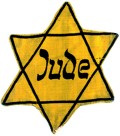
01.27.14 (Shevat 26, 5774) On January 27, 1945, the largest of the Nazi death camps (Auschwitz-Birkenau in Poland) was liberated by Soviet troops. In October 2005, the UN General Assembly designated this date as "International Holocaust Remembrance Day" to commemorate and honor the victims of the Nazi era. Note that the UN-sponsored date is not the same thing as Yom HaShoah, which occurs in the spring (i.e., Nisan 27).
The systematic genocide of the Jewish people is one of the most heinous and barbarous crimes in the history of humanity. Reflecting on these atrocities should cause us to be vigilant to protect the individual liberties of all people from the hands of the State. Any political ideology or religious creed that elevates the interest of the "collective" over the sanctity of the individual is inherently suspect. For more information, see this page.
Sanctuary of the Heart...

[ The following is related to this week's Torah reading, parashat Terumah... ]
01.26.14 (Shevat 25, 5774) "Let them make for me a sanctuary (מִקְדָּשׁ) that I may dwell in their midst" (Exod. 25:8). The sages note that the phrase, "that I may dwell in their midst" could be translated as "that I may dwell within them" (וְשָׁכַנְתִּי בְּתוֹכָ), suggesting that the point of the Tabernacle was to bring God within the hearts of His people... We must create a place within our hearts, in other words, for God to dwell within us... Yeshua likewise told us that we would experience God's abundant peace and joy when we would "abide in Him." Note that the gematria of the word Tabernacle (i.e., mishkan: מִשְׁכָּן) is 401, which is the same value as the word shema (שְׁמַע), "hear!" or "listen" (Deut. 6:4). When we really stop to listen to the LORD, we will find His glorious and loving Presence in our midst (Isa. 6:3).
The deepest message of the sanctuary, however, reveals God's sacrificial love, just as the purpose for the sacrificial system itself was to draw us close to God. The symbolic "life-for-life" exchange of an innocent animal for the sake of a sinner provided tangible hope that a holy and perfectly righteous God would make a way for his love and acceptance to triumph over his righteous judgment (Psalm 85:10). Indeed the idea of "sacrifice" is korban (קרְבָּן), a word that means to draw near (karov) to God. The New Testament states that the various sacrificial rituals were "examples" (ὑπόδειγματα) and "shadows" (σκιάς) of the heavenly Reality that would be given in the sacrifice of Yeshua, the great Lamb of God (Heb. 8:5; 10:1), and indeed the central sacrifice at the sanctuary was the daily sacrifice (i.e., korban tamid) of a defect-free male lamb with matzah and wine (Num. 28:1-8). Because of Yeshua, God draws near to us so that we can draw near to Him.... He is the "it-is-finished" offering that brings us into eternal fellowship with God. Yeshua is the Father's "gift of the heart" (i.e., terumah) given for you. It was the love of God that provided the provisional altar at the Tabernacle, just as his love put the blood of his Son on the cross. Both in the sacrificial rites of the brazen altar and in their later fulfillment in the crucifixion of Yeshua, the heart needs to trust in God's personal love. Yeshua stands at the door and knocks, ready to eat a "covenant ratification meal" with all who are trust in Him (Rev. 3:20).
May you find courage to open your heart to Him now...
 |
Offerings for Sanctuary...

01.26.14 (Shevat 25, 5774) In our Torah portion for this week (i.e., Parashat Terumah), God asked the people to offer "gifts from the heart" to create a "place" for Him: "Let them make for me a sanctuary that I may dwell in their midst" (Exod. 25:8). The Hebrew word for "sanctuary" is mikdash (מִקְדָּשׁ), which comes from the root word kadash (קָדַשׁ), "to be set apart as sacred." A mikdash is therefore a "set apart space," or a "holy place" that represents something profoundly treasured - a place of beauty and worship, a refuge, a place of rest. Other words that share this root idea include kedushah (holiness), kiddushin (betrothal), kaddish (sanctification), kiddush (marking sacred time), and so on. When God said, "Let them make for me a mikdash," then, he was inviting the people to make a sacred place within their hearts for His Presence to be manifest.... The "materials" required to make this place - gold, silver, brass, red and purple yarns, fine linens, oils, spices, precious stones, etc. - were ultimately from the heart, expressed in free-will offerings given to God.
The LORD then showed Moses the pattern (תַּבְנִית) according to which the Tabernacle and its contents were to be constructed. First an ark of acacia wood was to be overlaid with pure gold inside and out. The ark was to be fitted with gold rings and gold covered poles to make it portable. The two tablets of the law were to be stored inside the ark. Two cherubim (angel-like figures) were to placed facing each other over a cover of the ark called the kapporet (i.e., "Mercy Seat"). The ark was to be housed within an inner chamber of the tent called the Holy of Holies. Adjacent to the Holy of Holies was a second chamber called the Holy Place. This chamber would contain a table overlaid with pure gold that held twelve loaves of bread along with a golden, seven-branched menorah. The Holy of Holies was separated from the Holy Place by an ornamental veil called the parochet.
The LORD then described the pattern of the tent along with its exact dimensions. The tent was designed to be portable, with a wooden frame covered by richly colored fabric and the hide of rams and goats. The outer courtyard was to include a sacrificial altar with horns of copper set at each corner. The portion ends with a description of the outer court, which was to be entirely enclosed by an ornamental fence made with fine linen on silver poles with hooks of silver and sockets of brass.
Please see the Summary Page for parashat Terumah for more information. You can also download the Shabbat Table Talk for this portion here:
Sufficiency from God...
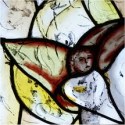
01.25.14 (Shevat 24, 5774) God's way of deliverance is entirely different than man's way. Man tries to suppress the flesh, to cover it up, to justify its failings, or to enlist its power in the battle against sin (i.e., religion, psychology, drugs, etc.), but God's way is to remove the flesh from the equation. The initial goal is not to make us stronger and stronger, but rather weaker and weaker, until the flesh is crucified and only the sufficiency of the Messiah remains (2 Cor. 4:7). Only then can we truly say, "I have been crucified with Messiah. It is no longer I who live, but the Messiah who lives in me. And the life I now live in the flesh I live by faith in the Son of God, who loved me and gave himself for me" (Gal 2:20). The word "Hebrew" (עִבְרִי) means one who has "crossed over" (עָבַר) to the other side, as our father Abraham did (Gen. 14:13). It is on the other side of the cross that we experience the very power that created the universe "out of nothing" (i.e., yesh me'ayin: יֵשׁ מֵאַיִן) and that raised Yeshua the Messiah from the dead. Therefore may you "find yourself in Him, not having a righteousness of your own that comes from the law, but that which comes through faith in Messiah, the righteousness from God that depends on faith" (Phil. 3:9).
 |
Come out of your tomb....
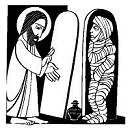
01.24.14 (Shevat 23, 5774) Yeshua said, "I tell you the solemn truth, unless a person is born anew - from above (ἄνωθεν) - he cannot see the kingdom of God." Nicodemus objected and asked, "How can a man be born when he is old? Can he enter a second time into his mother's womb and be born?" (John 3:3-4). Nicodemus had trouble visualizing spiritual reality and therefore reverted to categories of the natural. However, the "ordinary" way of seeing is deeply affected by habit, and therefore it resists the invitation to see the extraordinary, to open the heart and mind, and to let go of the "great possessions" of prejudice. Sadly, many people prefer the comfort of not thinking, not seeing, and not believing over the "discomfort" of being jarred awake to face reality. Yeshua calls out to those who are willing to hear: "Come to life; be born in the Spirit, awaken, O soul, and come out from your tomb..." (John 11:43-44).
Beware of False Prophets...

01.25.14 (Shevat 24, 5774) "Beware of false prophets," Yeshua warned, "who come to you in sheep's clothing (literally, "the skins of sheep," ἐν ἐνδύμασι προβάτων), but who inwardly are ravenous wolves. You will recognize them by their fruits" (Matt. 7:15; cp. 2 Pet. 2:1). However, because they come in disguise, pretending to be "children of light," we must be all the more vigilant. On the one hand, we must beware of those who "wrap themselves in a tallit" (legalists) and teach that we should come under the yoke of the law (Matt. 23:15), and on the other, we must beware those who minimize words of the holy Torah, who falsely claim that the way to heaven is "broad," and that we therefore are "free" to walk after the desires of our own hearts (antinomianists). We must use discernment, friends. Note this well: God allows false teachers in our midst to test our hearts: "For there must be (δεῖ) factions among you so that those who are genuine among you may be recognized" (1 Cor. 11:19). Therefore "test the spirits" to see if they are "of God," that is, whether they focus on the righteousness of God given exclusively through Yeshua, the "narrow way that leads to life" - or whether they focus on something else. The Holy Spirit centers the heart on the glory of God revealed in Yeshua (John 16:14; 1 Cor. 2:2, etc.).
 |
Life is in the Son...

01.24.14 (Shevat 23, 5774) The Hebrew word for "life" is chayim (חַיִּים), a plural noun that contains two consecutive letter yods (יי) that picture two "hands held together" (the Hebrew word yad [יָד] means "hand"), or the union of our spirit with God's Spirit. The word itself reveals that there is no life apart from union with God, who extends his hand to you and says, "Live in me" (John 15:4). Note that we can read chayim as chai (חי), "alive," combined with the particle im (אם), "if," suggesting that being alive is conditional on our connection with God in the truth. "Whoever believes in the Son has eternal life (חַיֵּי עוֹלָם); whoever refuses the Son shall not see life, but the separation of God remains" (John 3:36).
The Divine Life (הַחַיִּים) is such that it is never diminished as it shared but instead grows and multiplies in miraculous ways. This is alluded to by the Hebrew word for love (i.e., ahavah: אַהֲבָה), the numerical value of which is thirteen (1+5+2+5=13), but when shared with another it is multiplied: 13 x 2 = 26 - the same value for the Sacred Name (יהוה), i.e., (10+5+6+5=26). The love of God given in Yeshua is the very life of the universe:
 |
Note that in the graphic above, the Hebrew text shown under the name LORD is Elohim hu ahavah, "God is love," a phrase taken from 1 John 4:16 - "God is love, and whoever lives in love lives in God, and God lives in him." May God help each is us live the life in his love....
Seek God and Live....

01.24.14 (Shevat 23, 5774) Some people imagine spirituality as a climb upward, an "ascent of the soul" that aims to attain God through meritorious actions... But God does not say "at the end of the way you will find me," but rather, "I AM the way, the very road under your feet, the Place (הַמָּקוֹם) where you are, the Bridge to the Father (John 14:6). The LORD is Present in every "here" and every "now." And no matter what our circumstances, we will find God if we search "bekhol levavkha" - with all our hearts, as it is written: "You will seek me and find me, when you seek me with all your heart." So reach out for him today. The great commandment is dirshuni vichyu (דִּרְשׁוּנִי וִחְיוּ) - "Seek Me and live" (Amos 5:4).
וּבִקַּשְׁתֶּם אתִי וּמְצָאתֶם
כִּי תִדְרְשֻׁנִי בְּכָל־לְבַבְכֶם
u'vik·kash·tem · o·ti · u·metz·a·tem
ki · tid·re·shu·ni · be·khol · le·vav·khem

"You will seek me and find me
if you search for me with all your heart"
(Jer. 29:13)

Hebrew Study Card
The First and Last...
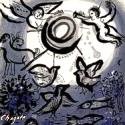
01.23.14 (Shevat 22, 5774) The Hebrew letters reveal truth about God. For instance, the very first letter of Torah (i.e., the Bet (בּ) in the word "Bereshit") and the very last letter of the New Testament (i.e., the Nun (נ) in the word "Amen") spell the word בּן ("Son"), the One who is Aleph and Tav (אָלֶף וְתָו), the First and Last, the Beginning and the Ending of the revelation of God. The Apostle John also identifies Yeshua with YHVH (יהוה), the "First and the Last" of whom there is no other god (see Isa. 44:6; Rev. 22:13, etc.). He is called ha-hoveh, ve'hayah, ve'yavo (הַהוֶה וְהָיָה וְיָבוֹא) - "the One who is, and was, and is to come, the Almighty" (Rev. 1:8). Only God is melech Yisrael (מֶלֶךְ יִשְׂרָאֵל), the true King of Israel:
כּה־אָמַר יְהוָה מֶלֶךְ־יִשְׂרָאֵל וְגאֲלוֹ יְהוָה צְבָאוֹת
אֲנִי רִאשׁוֹן וַאֲנִי אַחֲרוֹן וּמִבַּלְעָדַי אֵין אֱלהִים
ko · a·mar · Adonai · me·lekh · Yisrael · ve·go·a·lo · Adonai · Tze·va·ot
a·ni · ri·shon · va·a·ni · a·cha·ron · u·mib·ba·la·dai · ein · E·lo·him

"Thus says the LORD, the King of Israel and his Redeemer, the LORD of hosts:
"I am the first and I am the last; besides me there is no god."
(Isa. 44:6)
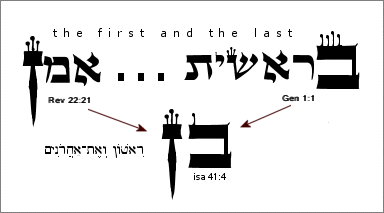
Hebrew Study Card
Compare the words above from the Book of Isaiah with John's awesome vision given at the island of Patmos and recorded in the Book of Revelation: "When I saw him, I fell at his feet as though dead. But he laid his right hand on me, saying, "Fear not, I am the first and the last (אֲנִי רִאשׁוֹן ואֲנִי אַחֲרוֹן) and the Living One. I died, and behold I am alive forevermore, and I have the keys of death and Hell" (Rev. 1:17-18).
Regarding the overmastering glory of Yeshua, the apostle Paul quoted Isaiah 45:23: "I have sworn by myself, the word is gone out of my mouth in righteousness, and shall not return, that unto me every knee shall bow, every tongue shall swear" and applied it directly to the Savior: "Therefore God has highly exalted him and bestowed on him the name that is above every name, so that at the name of Yeshua (Jesus) every knee should bow, in heaven and on earth and under the earth, and every tongue confess that Yeshua the Messiah is Lord (YHVH), to the glory of God the Father" (Phil. 2:9-11; see also Rom. 14:11). "For I am the LORD your God, the Holy One of Israel (קְדוֹשׁ יִשְׂרָאֵל), your Yeshua" (Isa. 43:3).
Anyone who claims to have "revelation" that pretends to go beyond that which is revealed by the King of Glory who is the First and the Last, the LORD and Redeemer of all; the LORD of the armies of heaven, the One who died and yet is alive forevermore -- will surely face the judgment from the One who holds the keys of death and hell... As it is written of Messiah: "Kiss the Son, lest he be angry, and you perish in the way, for His wrath is quickly kindled... Blessed are all they that put their trust in him (Psalm 2:12). As the prophet further attests: "Who has performed and done this, calling the generations from the beginning? I, the LORD, the First and with the Last; I AM he" (Isa. 41:4).
"Who has ascended to heaven and come down? What is his name, and what is his son's name? Surely you know! / מַה־שְּׁמוֹ וּמַה־שֶּׁם־בְּנוֹ כִּי תֵדָע (Prov. 30:4). Yeshua Ha-Mashiach (Jesus Christ) is YHVH "come in the flesh" (1 John 4:2-3). Indeed, to say "Jesus Christ is Lord" (Phil 2:11; Rom. 10:9) is to confess Him as Adonai -- or YHVH -- Himself. As our Savior Himself solemnly attested, "Whoever does not honor the Son does not honor the Father who sent Him" (John 5:22-23).
 |
The Mystery of Aleph....

01.23.14 (Shevat 22, 5774) Have you considered how the Hebrew letters reveal truth about God? For example, the Hebrew letter Aleph (א) is the "father" or "king" of the Aleph-Bet, whose original pictograph represents an ox, strength, and leader. Aleph is the first letter of the first word of the first commandment of God: anokhi (אָנכִי): "I AM" (Exod. 20:2), which also designates the Name ehyeh (אֶהְיֶה) first revealed to Moses (Exod. 3:14). The numerical value of Aleph is one, indicating its preeminence, and it is a silent letter, alluding to the ineffable mystery of God's sovereign will (the related word aluph (אַלּוּף) means "Master" or "Champion"). In the Hebrew script used for writing Torah scrolls (ketav Ashurit), Aleph is constructed from two Yods (that represent "hands") joined by a diagonal Vav (that represents man). One Yod (י) reaches upward while the other reaches downward, and both extend from the "fallen" Vav (ו), picturing a "wounded Man" or Mediator (1 Tim. 2:5). In the Hebrew numbering system (i.e., gematria), Yod = 10 and Vav = 6, so adding up the three parts of Aleph yields 26, the same value as the Name of the LORD: YHVH (יהוה). The very first letter of the Hebrew Alphabet, then, pictures the three-in-one LORD who mediates all of life for our salvation. And just as there are three parts to Aleph, but Aleph is One (echad: אֶחָד), so there are three Persons to the Godhead, yet God is absolutely One. Indeed, the gematria of the word Aleph (אָלֶף) is 111 (Aleph=1, Lamed=30, and Pey=80). As Yeshua said, every "jot and tittle" of Scripture is significant...
 |
Denying the Evident...

01.22.14 (Shevat 21, 5774) Sin is a sickness of heart, to be sure, though its ongoing lethality derives from the willful suppression and denial of the truth of God. It is written, "The wrath of God is revealed from heaven against all ungodliness and unrighteousness of men, who suppress (i.e., hold down: κατέχω) the truth by their unrighteousness, because that which can be known about God is evident within them, for God has revealed it to them" (Rom. 1:18-19). People "suppress the truth in unrighteousness," which means they choose to deny reality for the sake of their selfish illusions (John 3:19-20). Tragically, the natural state of the soul prefers selfish inner darkness than the light of God's righteousness (Rom. 8:7). In this connection we note that Paul states that Moses did not reveal moral truth by giving the Ten Commandments, since sacred reality is understood within every created soul (John 1:9; Acts 17:24-28). Where Paul says, "against all ungodliness" he refers to our universal duty before the Living God (בֵּין אָדָם לָמָקוֹם); and likewise "all unrighteousness," refers to our universal duty toward other people (בֵּין אָדָם לְחֲבֵרוֹ). The "invisible things of God are seen" so vividly that people are "without excuse" (ἀναπολόγητος) for their evasion and rejection of the Divine Presence, which constitutes the disposition of rebellion, treason, and chillul Hashem (Rom. 1:20). Ultimately, then, willfully refusing to turn to God in teshuvah results in spiritual death, since the soul remains under the wrath of God (ὀργὴ θεοῦ) - a desolate condition devoid life, light, truth, meaning, purpose, and eternal love (John 3:36). May God help us turn to him today.
 |
Righteousness of God...

01.21.14 (Shevat 20, 5774) It has been wisely said that there are two ways to be fooled. One is to believe what isn't true; the other is to refuse to believe what is true. Hence we see that thinking that you are spiritual when you really are not is to deceive yourself, but so also is thinking you are not spiritual when you really are. In the former case you are a hypocrite, but in the latter case you are a person of little faith... If you are willing to honestly examine the status of your spiritual life, see whether you are trusting in your own will to believe, or your own obedience to the moral law, etc., or whether you are trusting in the Reality and power of the resurrected Savior to give you life from the dead... Do you tend to regard the concept of the "righteousness of God" (δικαιοσύνη θεοῦ) to be more about the holy standards of God, or more about the divine love that condescends to impart healing and life to those who are lost, dying, and outside?
Many of us have learned from repeated failures that "the power of sin is in the law" (1 Cor. 15:56), that is, in the unjustified pride of the flesh (ego) that attempts to validate or justify itself. The business of working on yourself, excusing yourself, defending yourself, and so on runs so deeply that Paul calls it the "law of sin and death" (תּוֹרַת הַחֵטְא וְהַמָּוֶת). Often we have to keep revisiting the same sins over and over until the message sinks in and we begin to "get it." Only God Himself knows how many iterations are needed, but the flesh "dies hard" and therefore we keep attempting to find our identity, worth, and merit "under the law." Living under the law, understood here as the principle of self-justification, however, invariably leads to failure, guilt, and the need for further self-justification. The solution to this ever-turning "wheel of sorrow," this infinite and self-defeating "loop," is the righteousness of God that comes "apart from the law" (χωρὶς νόμου), - though the Law and the Prophets bear witness to it (Rom. 3:21). This is the righteousness of God that mercifully ends our relationship to the law (i.e., the covenant of works) by means of the new covenant of grace, so that we may be empowered by the Spirit to bear fruit for God (Rom. 7:1-6; Gal. 2:19-21).
 |
Inner Light of Messiah...

01.21.14 (Shevat 20, 5774) Yeshua said, "Whoever receives my Torah and keeps it, such is the one who loves me. And the one who loves me will be loved by my Father, and I will love him and will manifest myself to him" (John 14:21). Note that the Greek word for "manifest" means to "shine inside" (i.e., ἐμφανίζω, from ἐν, "in" and φαίνω, "shine"), indicating that the revelation would be inward light of the Divine Presence. The Hebrew word for "praise" (i.e., tehillah: תְּהִלָּה) also comes from a verb that means "to shine" (i.e., halal: הָלַל), from which we derive the English word "halo." Similarly, the Hebrew word for light is "ohr" (אוֹר), from which the word "aura" is derived. "Let your light shine before others so that they may see your good works and give honor to your Father who is in heaven" (Matt. 5:16).
The Way Of Empathy...

01.20.14 (Shevat 19, 5774) The "silver rule" of Torah may be stated as, "Do not do to others as you would not have them do to you," (i.e., "do no harm"), whereas the "golden rule" may be stated positively as, "Do to others as they would have done to them" (i.e., "do the good"). Both principles are based on the concept of reciprocity: How you treat others affects who you are, and vice-versa, and therefore we see the centrality of respecting ourselves, of regarding ourselves as redeemable, lovable, and so on. "You shall not wrong or oppress a stranger, for you were strangers in the land of Egypt" (Exod. 22:20), and this includes the stranger you make of yourself; the parts of yourself you hide away from consciousness. Moral reality is grounded in empathy, or the exercise of sympathetic imagination... "Give and it shall be given back to you." Put yourself in the place of the other - the stranger, the outsider, the lost child - and remember the pain you experienced when you were an outsider, isolated and excluded... As we recognize the value, dignity, and worth of others, so we will find it within our own hearts, and this enables us to see more of the good. The measure you use will be measured back to you (Luke 6:38).
 |
Obedience of Faith...
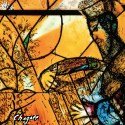
01.20.14 (Shevat 19, 5774) Some people think that true faith leads to works of righteousness, and yet it is possible to be entirely scrupulous in the performance of good works and yet be devoid of faith (Matt. 23:25). Indeed, many will say, "Lord, Lord, didn't we ... do many mighty works in your name?" but the Lord will reply: "I never knew you..." (Matt. 7:22-23). When asked what must be done to do the "works of God," Yeshua answered: "This is the work of God – that you believe in the One whom he has sent" (John 6:29). Believing itself is the obedience, as Paul wrote: the obedience of faith (ὑπακοὴν πίστεως) for the sake of His name" (Rom. 1:5). After all, faith is the very first commandment of Torah (אָנכִי יְהוָה אֱלהֶיךָ), and the "work of faith" is to trust in God's deliverance given in Yeshua the Messiah. Those who truly believe are justified by the righteousness of God, which is manifest in works of righteousness born by the power of the Spirit of God.
Many are scandalized by what they call "easy believism," or the idea that we only need to believe in Yeshua to be saved. Sometimes they call this teaching "cheap grace" or "sloppy agape," though in fairness it must be stressed that there is nothing easy about truly believing. What is easy, however, is professing that you believe without undergoing a miraculous heart transformation. Anyone can say, "I believe in Jesus," but the test is whether he lives within you. Is he the source of your life? Do you draw life from Him? Anyone can claim they are saved, but it is a miracle greater than splitting the sea to undergo divine metamorphosis, to be given a heart that loves unconditionally, that dies to pride, and that lives as the servant of all. Yeshua asks, "Do you really believe? Many will say to me in that day, 'Lord, Lord...' but I will say to them, 'I never knew you...' (Matt. 7:22-23). It's not just hard to believe (obey), it's impossible apart from God's radical intervention. It is the Spirit that gives life; the flesh is no help at all (John 6:33).
Living by faith does not mean we profess Christianity or "talk theology" like some college professor. It's one thing to believe that, and another to believe in... Human reason can rightly infer that a morally good, all-powerful Creator exists, for example (Rom. 1:20), but it is unable to know God's love that way... Love requires trust, "taking to the heart." We are to "know this day and turn to your heart (והֲשֵׁבתָ אֶל־לְבָבֶךָ) that the LORD is God in heaven above and on the earth beneath; there is no other" (Deut. 4:39). We need to know truth (cognitive) and to be moved by the heart (emotional); we need both Spirit and Truth (John 4:24). "For all things come from You (כִּי־מִמְּךָ הַכּל), and from your hand we give to you" (1 Chron. 29:14). Teshuvah centers on Yeshua our Savior: turn to believe in Him!
 |
Trust to Understand...

[ The following is related to this week's Torah reading, parashat Mishpatim... ]
01.19.14 (Shevat 18, 5774) From our Torah portion this week we read: "all the people answered with one voice and said, כָּל־הַדְּבָרִים אֲשֶׁר־דִּבֶּר יְהוָה נַעֲשֶׂה / "All the words that the LORD has spoken we will do" (Exod. 19:8; 24:3). It is paradoxical that we must first "do" and then "hear," but in matters of the spirit, we don't really "hear" apart from acting in faith, which is another way of saying that "faith without works is dead" (James 2:17). In other words, our deeds will bring to life our creed, and we will be given light as we act in confidence and trust. As Yeshua said, "If you know these things, happy (μακάριος) are you if you do them" (John 13:17). And may God show us the mercy we need to be "doers" of the word and not hearers only, "deceiving our own selves" (James 1:22). Amen.
Moses teaches the law...
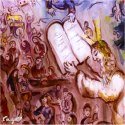
[ The following is related to this week's Torah reading, parashat Mishpatim... ]
01.19.14 (Shevat 18, 5774) Last week's Torah reading (Yitro) explained that exactly seven weeks after the Exodus from Egypt (i.e., 49 days after the first Passover), Moses gathered the Israelites at the foot of Mount Sinai to enter into covenant with the LORD. In a dramatic display of thunder, lightning, billowing smoke and fire, the LORD descended upon the mountain and recited the Ten Commandments to the people. Upon hearing the law's categorical requirements, however, the people shrank back in fear and begged Moses to be their mediator before God. The people then stood far off, while Moses alone drew near to the thick darkness to receive the various laws and rules from the LORD.
This week's Torah portion (Mishpatim) begins with Moses in the midst of the "thick darkness" receiving additional instructions regarding civil law for the Israelite people. The Jewish sages traditionally count 53 distinct commandments in this portion of the Torah, making it one of the most "legalistic" (i.e., law-focused) sections of the entire Bible. Civil laws, liability laws, criminal laws, agricultural laws, financial laws, family purity laws, Sabbath laws, and holiday laws are all given in this portion. These various social and civil laws are called "mishpatim" (מִשְׁפָּטִים), a plural word that means "rules" or "judgments."
After receiving these additional rules, Moses descended Sinai and went before the people to reveal to them the words of the LORD. Upon hearing the details, the people responded in unison, "all the words which the LORD has said we will do" (i.e., na'aseh: נַעֲשֶׂה). Moses then wrote down the words of the covenant into a separate scroll (sefer habrit), built an altar at the foot of Sinai, and ordered sacrifices to the LORD to be made. He then took the sacrificial blood from the offerings, threw half upon the altar, and read the scroll of the covenant to the people. The people ratified the covenant by saying, "all that the LORD says we will do and obey" (i.e., na'aseh ve'nishmah: נַעֲשֶׂה וְנִשְׁמָע). Upon hearing this, Moses took the other half of the sacrificial blood and threw it on the people saying, "Behold the blood of the covenant that the LORD has made with you in accordance with all these words." After this ceremony, Moses, Aaron, and seventy of the elders of Israel ascended Mount Sinai to eat a "covenant affirmation meal" between Israel and the LORD.
"Therefore not even the first covenant was inaugurated without blood." - Heb. 9:18
After returning from the mountain with the elders, the LORD commanded Moses to go back up to receive the tablets of stone inscribed with the Ten Commandments. On the seventh day there, he heard the Voice of the LORD calling to him from the midst of the cloud of glory, and then entered into the Presence of the LORD. He remained on the mountain for a total of forty days and forty nights receiving further revelation about the Mishkan (i.e., Tabernacle) while the Israelites waited for him at the camp down below.
Please see the Summary Page for parashat Mishpatim for more information. You can also download the Shabbat Table Talk for this portion here:
Blessings Every Day...

01.17.14 (Shevat 16, 5774) Rabbi Simlai taught, "Six hundred thirteen commandments were given to Israel at Sinai. Two hundred and forty eight positive commandments correspond to the joints of the body; three hundred and sixty five prohibitions to the three hundred and sixty five days of the year" (Makkot 23b). This is to say that we are to serve God with every limb of our bodies every day of our lives. The truth of God connects every part of ourselves with every day of our lives... Likewise in the New Testament we read: "In Him we live and move have our being" (Acts 17:28). Just as every breath signifies the giver of the Breath of Life, so every action signifies God's sustaining power. And since the New Testament actually contains more commandments (i.e., blessings) than the Torah, we rightly infer that at any given place or time we have the Teacher Present, the very Wisdom of God, to guide our steps. As Yeshua said, "behold, I AM with you always..." (Matt. 28:20).
One of the Ten Commandments is to rest in the LORD your God (Exod. 20:8-11), which is a picture of the "set table" the LORD provides for us as his children. The deepest principle of Sabbath is that we are set free from our striving and can open our hearts to God's gracious love... "Salvation is of the LORD," and we rest in the what the Lord has done for us. "If you call the Sabbath a delight; if you honor it, then you shall take delight in the LORD, and I will make you ride on the heights of the earth; I will feed you with the heritage of Jacob your father, for the mouth of the LORD has spoken" (Isa. 58:13-14).
 |
Lord of our Sabbath...

01.17.14 (Shevat 16, 5774) "For through the law I died to the law (ἐγὼ γὰρ διὰ νόμου νόμῳ ἀπέθανον), so that I might live to God. I have been crucified with Messiah. It is no longer I who live, but Messiah who lives in me. And the life I now live in the flesh I live by faith in the Son of God, who loved me and gave himself for me. I do not nullify the grace of God, for if righteousness were obtained through the law, then Messiah died for no purpose" (Gal. 2:19-21). Where it says, "the Son of God who loved me and gave himself for me," emphasize the focus of God's redeeming love; stress that this word is being spoken "to me," and that Messiah's love is poured out "for me." This is the new "I" that comes to life - the "I" born in right relationship with God's heart and love. We have a new "identity" through our union with Messiah, we are "new creations," and our lives are now forever bound up in his invincible life. We no longer look to ourselves, but to the miracle of "Messiah who lives in me." We walk in righteousness by yielding to the abiding righteousness of Yeshua in our daily lives. "If we live by the Spirit, let us also walk by the Spirit" (Gal. 5:25). Yeshua is the "Lord of our Sabbath" day - the One who gives us rest and peace!
 |
Borne by the Spirit...
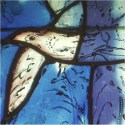
01.17.14 (Shevat 16, 5774) Sin is defined as the transgression of Torah (i.e., ἀνομία) in the Scriptures (1 John 3:4), and at root such rebellion comes from an unwillingness to trust that what God wants is your deepest happiness. Because of this, sin goes "out of bounds" and expresses itself as the desire to control one's life, to define "the good" (or the bad) on its own terms: to "eat of the tree of the knowledge of good and evil" (Gen. 2:17). Surrender, on the other hand, gives up control and relies upon God's care. It relaxes because it accepts God's love as a gift and not as something to be earned. Meister Eckhart said it this way, "God is not attained by a process of addition to anything in the soul, but by a process of subtraction." In other words, we don't need to do anything to be free, though we must "get out of the way" for the Holy Spirit to do the work in us. "If the Son shall set you free, you shall be free indeed" (John 8:36). Set us free, O precious Lord!
 |
Lawful Use of the Law...
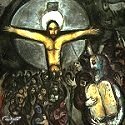
[ The following is related to this week's Torah reading, Parashat Yitro... ]
01.17.14 (Shevat 16, 5774) For all who are led by the Spirit of God are children of God" (Rom. 8:14). Are you led by the Spirit of God in your daily life, in the midst of your joys, sorrows, and tribulations? This is essential, after all. Do you live in the freedom of Messiah? If you are led by the Spirit, you no longer labor under the law of sin and death but you are set free to experience a new order of reality (Rom. 8:2). The law is holy, righteous, and good, of course, but it also reveals our lethal spiritual condition (Rom. 7:7-25) and therefore it reveals our great need for a Savior, the Messiah who is the end (τέλος) of the law (Rom. 10:4; Gal. 3:21-24, 4:4-5). Those who advocate "Torah observance" do not understand the divine purpose of the law itself (1 Tim. 1:7), and those who teach the law as the means of finding life "frustrate the grace of God" (Gal. 2:19-21). The "lawful use of the law" demonstrates the holiness of God and serves as a mirror of our sinful condition, but the "unlawful use of the law" seeks righteousness apart from the saving agency of Messiah who (alone) is the "righteousness of God." The end of the commandment is "love that issues from a pure heart and a good conscience and a sincere faith" (1 Tim. 2:5). And just as Yeshua came not for the righteous but for sinners (Mark 2:17), so the law was not given for the righteous, but for those who know they need deliverance from the power of indwelling sin (Rom. 3:20, 7:7). "Know this: the law is not laid down for the just but for the lawless and disobedient, for the ungodly and sinners, for the unholy and profane, for those who strike their fathers and mothers, for murderers, the sexually immoral, men who practice homosexuality, enslavers, liars, perjurers, and whatever else is contrary to life-giving doctrine" (1 Tim. 1:9-10).
The Apostle Paul wrote that the lawcode reveals our sinful condition: "for from the law comes the knowledge of sin" (διὰ γὰρ νόμου ἐπίγνωσις ἁμαρτίας). "But now the righteousness of God (צִדְקַת אֱלהִים) apart from the law is manifested, being witnessed by the law and the prophets" (Rom. 3:20-21, see also Gal. 3:19). The phrase "apart from the law" means from an entirely different sphere from that which says, "do this and live." It is the "righteousness" (δικαιοσύνη) that comes from God, not from man.... Yeshua is Adonai Tzidkenu - the LORD our Righteousness.
But what about the statement that the LORD would write the Torah upon our hearts? Does not the New Covenant state: "I will put my law (תּוֹרָה) within them, and I will write it on their hearts" (Jer. 31:31-33)? Yes, it surely does, but it is vital to understand that the Torah referred to here is the Torah of the New Covenant, not the Torah of the Old Covenant (2 Cor. 3:14). Surely the "ministry of death (θάνατος), carved in letters on stone, which is being brought to an end" was not to be written on our hearts! No, the letter kills, but the Spirit gives life. The "ministry of condemnation" (i.e., κατάκρισις, judgment) is contrasted with the "ministry of righteousness" (i.e., δικαιοσύνη) and far exceeds it in glory and value (2 Cor. 3:6-9). Again, as Paul plainly stated: "The law is good if it is used lawfully," understanding that the lawcode speaks to those who are lawbreakers - to the lawless and disobedient, to adulterers, murderers, and so on (1 Tim. 1:8-10). In other words, the law functions as a sort of "cage" intended to restrain the evil impulses of the heart. The problem is not with the law, but rather with the underlying condition of the heart.... What we need is not more laws, but transformation of heart - and that is precisely what the New Covenant is all about: The miracle of spiritual rebirth, a new "heart of flesh," and God-given power to walk in love and thereby transcend the law and its requirements...
As you consider these matters, be careful to distinguish between the general idea of Torah (תּוֹרָה) with the more specific idea of covenant (בְּרִית), since these are different (though related) ideas. The Hebrew word "Torah" is a general word that means "instruction" or "teaching," whereas the word "covenant" refers to a specific agreement made between God and man. In order to avoid confusion between the Torah of Moses (תּוֹרַת משֶׁה) and the Torah of Yeshua (תּוֹרַת הַמָּשִׁיחַ), we must keep in mind that Torah is always a function of the underlying covenant (בְּרִית, "cut") of which it is part. This implies that if the covenant were to change, so would our responsibility (i.e., Torah), as is stated in the Book of Hebrews (e.g., Heb. 7:12). Followers of Yeshua have Torah, of course, though it is based on the New Covenant of God, not on the promise to obey the terms of the covenant given at Sinai. We must exercise care here, since the failure to make this distinction leads to exegetical errors and invalid doctrines. For more on this important subject, please see Why then the Law?
The Torah of the New Covenant centers on walking in the Spirit. Regarding the middot ha-lev (qualities of heart) that are to mark the follower of Yeshua, the Apostle Paul wrote, "the fruit of the Spirit (פְּרִי הָרוּחַ) is love, joy, peace; long-suffering, generosity, acts of kindness; faithfulness, humility, and modesty – against such there is no law" (Gal. 5:22-23). Notice that while there is "one fruit" of the Spirit (i.e., "fruit" [καρπὸς] is singular), the expression of the "inner seed" produces a manifold yield, just as the Tree of Life (עֵץ הַחַיִּים) produces twelve different kinds of fruit, one for each month of the Jewish year (see Rev. 22:1-2).
 |
Revelation and Fear...
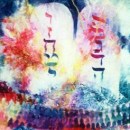
[ The following is related to this week's Torah reading, Parashat Yitro... ]
01.17.14 (Shevat 16, 5774) While the Ten Commandments were dramatically uttered amidst thunder, lightning, smoke, and the roar of the heavenly shofar, they essentially restate spiritual and moral truth intuitively known by all people (see Rom. 1:19-32). In light of this, we may wonder why God made such a terrifying presentation of principles already implanted within those he created in his image, and especially to the direct descendants of Abraham, Isaac, Jacob, Joseph, and Moses... After all, God's truth is spoken using a "still small voice" rather than in fiery displays (1 Kings 19:12). In reply, it may be said that while most people intuitively understand the whisper of "right and wrong," they often suppress the voice of conscience because they do not genuinely fear God, and therefore they fail to connect the significance of their choices with the Divine Lawgiver who is the Source of moral reality. They separate, in other words, the idea of transcendental "Supreme Being" (i.e., the cosmic Creator) from the Source of immanent value and meaning (i.e, the Judge of all). The First Commandment, however, reminds us: "I AM (anokhi) the LORD (YHVH) your God (Elohim)," which identifies divine power with righteousness and holiness. The drama of the revelation at Sinai was therefore intended to instill yirat haShem - the awe of God - within the heart, connecting the Supreme Power with moral truth and its implications (i.e., conscience). The Israelites drew back in fear because they realized that the Holy One was present in their private thoughts, attitudes, and motives of the heart, and this produced a sense of dread within them (Exod. 20:19). Moses reassured them, however, by saying that the surrounding terrors - which undoubtedly resembled the wonders they had witnessed in Egypt - would do them no harm if they would heed the Voice of the LORD. In other words, the terrifying glory of Sinai was meant to impart a sense of reverence and to help the people know that the LORD God is the Source of all power and glory...
Note: As a point of Hebrew grammar, the pronoun anokhi (אָנכִי) generally emphasizes the subject: "I (alone) am..," whereas the pronoun ani (אֲנִי), emphasizes the predicate: "I am X," focusing on the predicate adjective X. When God said, "I am (anokhi) the LORD (יהוה) your God (אלהים), he was identifying absolute holiness with utter transcendental power.
 |
Revive the Hurting...

01.16.14 (Shevat 15, 5774) Where it is written, "Do not cast me off in the time of old age; forsake me not when my strength is spent" (Psalm 71:9), the sages read, "Do not let my time cast You into oldness; let not my strength be spent in emptiness." Lord, make everything new, revive the hurting, in the name and for the sake of thy love...
אַל־תַּשְׁלִיכֵנִי לְעֵת זִקְנָה
כִּכְלוֹת כּחִי אַל־תַּעַזְבֵנִי
al · tash·li·khei·ni · le·et · zik·nah
kikh·lot · ko·chi · al · ta·az·vei·ni

"Do not cast me off in the time of old age;
forsake me not when my strength is spent."
(Psalm 71:9)

"O Lord, all my desire is before you; my groaning is not hidden from you." Until the Master of the Universe helps, the Master of the Universe will help... Amen. God will help us, and he will help us before we know that he helps us! Therefore do not be anxious; fear not: your heavenly Father knows what you need before you ask Him.
אֲדנָי נֶגְדְּךָ כָל־תַּאֲוָתִי
וְאַנְחָתִי מִמְּךָ לא־נִסְתָּרָה
Adonai · neg·de·kha · khol-ta·a·va·ti
ve·an·cha·ti · mi·me·kha · lo-nis·ta·rah

"O Lord, all my desire is before you;
my groaning is not hidden from you."
(Psalm 38:9)

Hebrew Study Card
It is written, "The world is built in chesed," olam chesed yibaneh (עוֹלָם חֶסֶד יִבָּנֶה), which means that our inner life is being built by God's love... "So we do not lose heart. Though our outer self is wasting away, our inner self is being renewed day by day. For this light momentary affliction is preparing for us an eternal weight of glory beyond all comparison, as we look not to the things that are seen but to the things that are unseen. For the things that are seen are transient, but the things that are unseen are eternal" (2 Cor. 4:16-19).
Torah of Willingness...
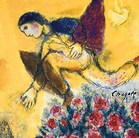
[ The following is related to this week's Torah reading, Parashat Yitro... ]
01.16.14 (Shevat 15, 5774) Do you need to understand before you will believe? The midrash says that God offered the Torah to each the 70 nations, but each nation first asked to understand what was required, and then rejected the offer... Finally God approached Israel and asked: "Will you accept my Torah?" And they replied, kol asher dibber Adonai na'aseh (כּל אֲשֶׁר־דִּבֶּר יְהוָה נַעֲשֶׂה), "all that the LORD has spoken we will do" (Exod. 19:8). In other words, Israel was willing to accept the Torah even before they understood what was required of them. Later they reaffirmed their simplicity of heart by saying na'aseh ve'nishma: "We will do and then we will understand" (Exod. 24:7). Faith is first of all a matter of heart, of gratitude, and responding to God's invitation. All the "externals" of the Sinai experience - the fire, the smoke, the blasts of the shofar - were known in the deeper fire, smoke, and soundings of the heart of faith.
First we learn to trust Him, and then we learn to walk with Him... in that order.
 |
Fruit of our Words...

01.16.14 (Shevat 15, 5774) Yeshua said that as a tree is to its fruit, so is a person's heart is to his speech. Our words arise from an underlying source and root: "I tell you, on the Day of Judgment people will give account for every careless word (πᾶν ῥῆμα ἀργὸν) they speak, for by your words you will be justified, and by your words you will be condemned" (Matt. 12:36-37). First note that the phrase translated "every careless word" can be understood as "every 'workless' word," that is, every vain or empty word spoken, every broken promise, every insincere utterance, and so on. Second, note that there is a relationship between naming and being in Hebrew thought, and indeed the Hebrew word davar (דּבר), usually translated as "word," can also mean "thing." This suggests that our words define reality - not in an absolute sense, of course - but in terms of our perspective and attitude, and for that we are held responsible before the LORD. Since our words express our thoughts, Yeshua wants us to make up our minds: "Either make the tree good and its fruit good, or make the tree bad and its fruit bad, for the tree is known by its fruit."
Listen to the words of your heart and understand that they are devarim, "things" that are defining the course of your life right now. Our thoughts and words "exhale" the breath of God that was given to each of us. In a very real sense they serve as "prayers" we are constantly offering.... And may it please our gracious and long-suffering LORD to answer the cry of our heart: "Let the words of my mouth and the meditation of my heart be acceptable in your sight, O LORD, my Rock and my Redeemer." Amen.
יִהְיוּ לְרָצוֹן אִמְרֵי־פִי
וְהֶגְיוֹן לִבִּי לְפָנֶיךָ יְהוָה צוּרִי וְגאֲלִי
yi·he·yu · le·ra·tzon · im·rei · fi
ve·heg·yon · lib·bi · le·fa·ne·kha · Adonai · tzu·ri · ve·go·a·li

Let the words of my mouth and the meditation of my heart
be acceptable to You, O LORD, my rock and my redeemer.
(Psalm 19:14)

Hebrew Study Card
The Torah of Trees...

[ The following is related to Tu B'Shevat, the "New Year for Trees..." ]
01.15.14 (Shevat 14, 5774) The Torah alludes that human life is like "the tree of the field," i.e., כִּי הָאָדָם עֵץ הַשָּׂדֶה, Deut. 20:19), and many people therefore observe Tu B'Shevat as time to assess man's place within creation as well. Since God created the world for a habitation (Isa. 45:18), some have pictured the world itself as a "great tree" with human beings as its fruit. Indeed, Yeshua often used such agricultural images in his parables. For example, he explained that people are known by the "fruits" of their lives (Matt. 7:16-20). He likened the spread of his message in terms of "sowing and reaping" (Matt. 13:3-23) and compared the Kingdom of Heaven to the secret working of a mustard seed (Matt. 13:31-32). Yeshua regarded the world as a "field" for planting with different "types of soil" (Matt. 13:38-43), and warned of the "great harvest" of souls at the end of the age (Luke 10:2; Matt. 13:30). He pointed to signs from a fig tree to indicate the nearness of the prophesied End of Days (Matt. 24:32-33). Yeshua also used the metaphor of a "vine and its branches" to explain how his followers are to be connected to Him (John 15:1-6).
The Scriptures explicitly state various laws regarding the use of trees. In other words, there is a "Torah of Trees." For example, "When you enter the land and plant any tree for food, you shall regard its fruit as "uncircumcised" (i.e., orlah: עָרְלָה) for three years; in the fourth year all its fruit shall be holy, an offering of praise to the LORD; only in the fifth year may you use its fruit, to increase its yield for you: I am the LORD your God" (Lev. 19:23-25; 26:3-4). The Torah also clearly forbids the destruction of fruit trees during times of warfare: "When you besiege a city for a long time, making war against it in order to take it, you shall not destroy its trees by wielding an axe against them. You may eat from them, but you shall not cut them down. Are the trees in the field human, that they should be besieged by you?" (Deut. 20:19-20). Clearly, then, God cares for trees...
The psalmist describes the trees of the forest as singing for joy (Psalm 96:12), just as the prophet Isaiah foretold the day when the trees of the field shall "clap their hands" in praise to the LORD God of Israel (Isa. 55:12). Indeed the wisdom of Torah (chochmat haTorah) is metaphorically called etz chaim, a "Tree of Life," and the ideal righteous man is described as the one who delights in the Torah (תּוֹרָה) and meditates upon it daily. "He is like a tree planted by streams of water that yields fruit in its season."
וְהָיָה כְּעֵץ שָׁתוּל עַל־פַּלְגֵי מָיִם
אֲשֶׁר פִּרְיוֹ יִתֵּן בְּעִתּוֹ וְעָלֵהוּ לא־יִבּוֹל
וְכל אֲשֶׁר־יַעֲשֶׂה יַצְלִיחַ
ve·ha·yah · ke·eitz · sha·tul · al-pal·gei · ma·yim
a·sher · pir·yo · yit·ten · be·i·to · ve·a·lei·hu · lo · yib·bol
ve·khol · a·sher · ya·a·sei · yatz·li·ach

"He (i.e., the one who delights in Torah) is like a tree planted by streams of water
that yields its fruit in its season, and its leaf does not wither.
In all that he does, he prospers."
(Psalm 1:3)

Download Study Card
New Year for Trees...
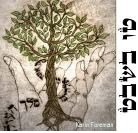
[ Tonight at sundown begins the 15th day of the Hebrew month of Shevat (i.e., Tu B'Shevat), the tradtional date that marks the beginning of a "New Year for Trees." ]
01.15.14 (Shevat 14, 5774) The Bible begins and ends with the Tree of Life -- first in the orchard of Eden, and later in the midst of the paradise of heaven. "The Tree of Life (etz ha-chayim) was in the midst of the garden..." (Gen. 2:9). "Then the angel showed me the river of the water of life, bright as crystal, flowing from the throne of God and of the Lamb through the middle of the street of the city; also, on either side of the river, the Tree of Life (etz ha-chayim) with its twelve kinds of fruit, yielding its fruit each month..." (Rev. 22:1-2).
Notice that the "twelve fruits" (καρποὺς δώδεκα) from the Tree of Life are directly linked to the "twelve months" of the Jewish year (κατὰ μῆνα ἕκαστον ἀποδιδοῦν τὸν καρπὸν αὐτοῦ: "each month rendering its fruit"). Twelve months; twelve fruits.... The sequence of the holidays (moedim) was always intended to teach us great revelation about God. That is why God created the Sun and the Moon for signs and for "appointed times" (Gen. 1:14). As it is also written: "He made the moon to mark the appointed times (לְמוֹעֲדִים); the sun knows its time for setting" (Psalm 104:19).
For more on this subject, see "Tu B'Shevat: Rosh Hashanah for Trees."
 |
The Divine Connection...

01.15.14 (Shevat 14, 5774) Yeshua used the allegory of a vine and its branches to illustrate how we are to be spiritually connected to Him. The purpose of the branch is to be a conduit of the life of the vine. Vine branches by themselves are of little value, apart from the manifestation of fruit; they cannot be used for building things and otherwise are regarded as bramble (Ezek. 15:2-4). Notice further that the vine branch cannot bear good fruit while it remains on the ground: it must "climb" upward and be elevated. And if you look closely at a vine, it is often difficult to see where the vine ends and the branches begin; the life of the branch becomes "entangled" in that of the vine. So it is when we "abide in," or are truly "connected with," Yeshua as the Source of divine life, we will bear the fragrance and sweet-smelling savor of heaven itself...
אֲנִי הַגֶּפֶן אַתֶּם הַשָּׂרִיגִים
הָעוֹמֵד בִּי וַאֲנִי בּוֹ
עוֹשֶׂה הַרְבֵּה פִּרִי
שֶׁכֵּן בִּלְעֲדַי אֵינְכֶם יְכוֹלִים לַעֲשׂוֹת דָּבָר
a·ni · ha·ge·fen · at·tem · ha·sa·ri·gim
ha·o·med · bi · va·ani · bo
o·seh · har·beh · pe·ri
she·ken · bil·a·dai · ey·ne·khem · ye·kho·lim · la·a·sot · da·var

"I am the vine; you are the branches.
Whoever lives in me and I in him,
he it is that bears much fruit,
for apart from me you can do nothing.
(John 15:5)
ἐγώ εἰμι ἡ ἄμπελος, ὑμεῖς τὰ κλήματα.
ὁ μένων ἐν ἐμοὶ κἀγὼ ἐν αὐτῷ
οὗτος φέρει καρπὸν πολύν,
ὅτι χωρὶς ἐμοῦ οὐ δύνασθε ποιεῖν οὐδέν
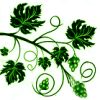
The expression "apart from me" (χωρὶς ἐμοῦ) means being in a state of separation from Yeshua, which is likened to spiritual death... It is the death of possibility, the absence of power to yield true good to the world, and so on. This is what is meant by "you can do nothing" (οὐ δύνασθε ποιεῖν οὐδέν), that is, you can do nothing of any eternal significance or worth... There is simply no true life apart from the Savior. "The fruit of the righteous is like the Tree of Life (עֵץ חַיִּים), and whoever captures souls is wise (Prov. 11:30). "God is the gift of love; God is both the offering and the fire of the altar, and through God's hand is the sacrifice rendered true."
Please do not disregard the admonishment found in the immediately following verse: "If anyone does not abide in me he is thrown away like a branch and withers; and the branches are gathered, thrown into the fire, and burned" (John 15:6). When the branch is severed from the vine, it withers and eventually will die. It is no longer worth anything apart from being used to kindle a fire...
Living in vital union with Yeshua is all-important, friends. Those who do not continue "abiding" in Him are mere professors or spiritual impostors who have never really known real connection with him (1 John 2:19). Similarly, the prophet Ezekiel described apostate Judah as a "useless vine" that was ready to be finally devastated in God's judgment: Jerusalem would be burned, the Temple razed, and its inhabitants destroyed by God's agent of retribution named Nebuchadnezzar (Ezek. 15:1-8).
God is the "Vine Dresser," and the vine branches require a lot of ongoing care and maintenance for the vine to produce genuine fruit... For instance, they must be pruned lest they become wild grapes or useless "sucker" branches... Yeshua described himself as the "true vine," which means that His connection with the Father is entirely trustworthy because it is grounded in reality and truth. Abiding in Yeshua is the means by which we are connected to God, and through our relationship with Him God produces genuine spiritual fruit in our lives: "Only God gives the growth" (1 Cor. 3:7).
Yeshua said, "I am the true Vine (הַגֶּפֶן הָאֲמִתִּית), and you are the branches" (John 15:1). We derive our identity, life and strength from being made part of His life, His vision, and His purposes... In Hebrew, this idea is called devakut (דְּבָקוּת) which means "cleaving" to God bekhol-levavkha (בְּכָל־לְבָבְךָ), "with all your heart," and bekhol-nafshekha (בְּכָל־נַפְשְׁךָ), "with all your soul," and bekhol-me'odekha (בְּכָל־מְאדֶךָ), "with all your being..." It is the essence of the great commandment to love God given in the Shema. We are able to so cleave to God in Yeshua because God does a miracle and gives us a new heart to serve Him. We love Him because He first loved us (1 John 4:19).
Whether Yeshua is living in you (and you are living in Him) is the most important question of your life upon which everything else turns. The great mystery is "Christ in you, the hope of glory" (Col. 1:27). As Ravenhill once said, "I don't ask people if they're saved anymore; I look them straight in the eye and say, "Does Christ live inside you?" Indeed, He is present right now -- for you -- in this very moment... Are you connected with Him in the truth? Are you drawing life from His life? Do you really live in Yeshua?
עִמְדוּ בִּי וַאֲנִי בָּכֶם
כְּמוֹ שֶׁהַשָּׂרִיג אֵינְנוּ יָכוֹל לַעֲשׂוֹה פְּרִי מֵאֵלָיו
אִם לא יַעֲמוֹד בַּגֶּפֶן
כָּךְ גַּם אַתֶּם אִם־לא תַעַמְדוּ בִּי
im·du · bi · va·a·ni · ba·khem
ke·mo · she·ha·sa·rig · ei·ne·nu · ya·khol · la·a·sot · pe·ri · me·e·lav
im · lo · ya·a·mot · ba·ge·fen
kakh · gam · at·tem · im · lo · ta·am·du · bi

"Live in me, and I will live in you.
Just as a branch cannot bear fruit by itself,
unless it lives in the vine,
neither can you, unless you live in me."
(John 15:4)
Μείνατε ἐν ἐμοί, κἀγὼ ἐν ὑμῖν.
Καθὼς τὸ κλῆμα οὐ δύναται καρπὸν φέρειν ἀφ᾽ ἑαυτοῦ,
ἐὰν μὴ μείνῃ ἐν τῇ ἀμπέλῳ,
οὕτως οὐδὲ ὑμεῖς, ἐὰν μὴ ἐν ἐμοὶ μείνητε.

Of course it is a struggle to keep our focus along the way, and there are various tests we all will experience, including the tests of apathy, weariness, confusion, and so on... We must ask the LORD God of Israel to help us stay connected with the life, truth, and vision of Yeshua. May he impart faith so we may take hold of hope with wonder, praise, and great joy.... And may it please God to help each of us "put on the new self, created after the likeness of God in true righteousness and holiness" (Eph. 4:24). Amen.
These are the words...

[ The following is related to this week's Torah reading, Parashat Yitro... ]
01.14.14 (Shevat 13, 5774) From our Torah portion this week we read: "You shall be treasured and set apart; you shall be a child of the King; you shall be one who helps others draw near to God... these are the words (אֵלֶּה הַדְּבָרִים) that you shall speak" (Exod. 19:5-6). These are the words of love: "And you shall love the LORD your God with all your heart, with all your soul, with all your substance. Set these words (הַדְּבָרִים הָאֵלֶּה), which I command you this day, upon your heart" (Deut. 6:5-6). We store up these words so that, in a holy moment, they are quickened within us and we are able to hear the Voice of the LORD speaking from the midst of the fire that burns within our hearts. As Simone Weil said, "love is revelation, and revelation comes only with love."
Taking the Name in Vain....
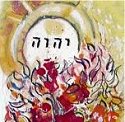
01.14.14 (Shevat 13, 5774) Where it is written, "You shall not take the name of the Lord your God in vain, for the Lord will not hold him guiltless who takes his name in vain" (Exod. 20:7), we note that the Hebrew text reads that you shall not "carry" (תִשָּׂא) God's name in vain, which means you must not use your religion as justification for your selfish causes. Just as people often flatter themselves by uncritically accepting their own opinions, so they may appeal to God to vindicate their own petty differences with others. We must be careful not to discredit God by doing things "in his name" that he never said we should do.
לא תִשָּׂא אֶת־שֵׁם־יְהוָה אֱלהֶיךָ לַשָּׁוְא
כִּי לא יְנַקֶּה יְהוָה אֵת אֲשֶׁר־יִשָּׂא אֶת־שְׁמוֹ לַשָּׁוְא
lo · tis·sa · et · shem · Adonai · e·lo·he·kha · la·shav'
ki · lo · ye·nak·keh · Adonai · et · a·sher · yis·sa · et · she·mo · la·shav'

"You shall not carry the name of the LORD your God for vain purposes,
for the LORD will not hold him guiltless who carries his name in vain."
(Exod. 20:7)
You may rationalize your behavior, giving plausible excuses for doing what you want, but the test is this: Are you willing to testify before God regarding the motive for your actions? "The LORD will not hold him guiltless who takes his name in vain" because God cannot lie or repeal reality itself. Sanctifying the name of the LORD, then, means showing proper reverence toward truth, especially regarding motivations of the heart.
For more on this subject, see "The Third Commandment: Taking the Name in Vain."
Idols of the Self...

01.13.14 (Shevat 12, 5774) "You shall have no other gods before me; you shall not make yourself an idol..." (Exod. 20:3-4). The sages ask how our ancestors could have been so foolish as to worship "gods" made by human hands, and answer that though they knew they were worthless, idols gave public sanction to the practice of their lusts (San. 63b). The appeal of an idol is therefore similar to the appeal of any false religion: devise a new authority, a new "god," that will tell you want you want to hear and offer you license to do as you wish. Hence we see how the second commandment inevitably follows the first, since impugning God's place in your heart leads to making your self into an idol.
"You shall worship the Lord your God and him only shall you serve" (Matt. 4:10).
First Word of Revelation...

01.13.14 (Shevat 12, 5774) The Ten Commandments were given in the singular, not in the plural: "I AM the LORD your (singular) God" – to emphasize that each person must hear the message and receive it for themselves. "I am the LORD your God" (אָנכִי יְהוָה אֱלהֶיךָ) is therefore the starting point of all Torah, the very first commandment, and the foundation for any of the others. Revelation begins with the apprehension of "I AM" for you – I AM your God who brings you out of slavery to your fear.
אָנכִי יְהוָה אֱלהֶיךָ
אֲשֶׁר הוֹצֵאתִיךָ מֵאֶרֶץ מִצְרַיִם
מִבֵּית עֲבָדִים
a·no·khi · Adonai · E·lo·he·kha
a·sher · ho·tzei·ti·kha · me·e·retz · mitz·ra·yim
mi·beit · a·va·dim

"I AM the LORD your God,
who brought you out of the land of Egypt,
out of the house of slavery."
(Exod. 20:2)

Hebrew Study Card
It is noteworthy that God began the revelation at Sinai by identifying himself as our Deliverer (i.e., asher hotzetikha me'eretz mitzrayim, the "one who delivered you from the land of Egypt") rather than identifying himself as the Creator of heaven and earth (Gen. 1:1). This is because the purpose of creation is to demonstrate God's redemptive love and to be known as our Savior and Redeemer, just as Yeshua is the "Lamb slain from the foundation of the world" (Rev. 13:8; 1 Pet. 1:18-20; Eph. 1:4; 2 Tim. 1:9). "All things were created by Him (i.e., Yeshua), and for Him" and in Him all things consist (συνεστηκεν, lit. "stick together") (Col. 1:16-17). Creation therefore begins and ends with the redemptive love of God as manifested in the Person of Yeshua our Mashiach, the great Lamb of God... He is the Center of Creation - the Aleph and Tav - the Beginning and the End (Isa. 44:6; Rev. 1:17). All the world was created for the Messiah: "For from him and through him and to him are all things. To him be glory forever. Amen" (Rom. 11:36).
When you hear "I AM the LORD your God" as personally spoken to you, then you are made a child of eternal promise, and even if heaven and earth should melt away in fervent heat, you can trust that nothing can keep you from the care of your heavenly Father (Rom. 8:31-39). Perfect love casts out fear. Make yourself bold, then, to receive God's love for your soul. Abide in God's love; make it your own. Loving God is the beginning and end of all of reality.
 |
Torah of the Neighbor...

[ The following is related to this week's Torah reading, Parashat Yitro... ]
01.13.14 (Shevat 12, 5774) The Ten Commandments are often divided into two basic groups or categories. The first five commandments are said to be "between man and God" (i.e., ben adam lechavero: בֵּין אָדָם לְחֲבֵרוֹ), and contain 146 words; whereas the second five are said to be "between man and other people" (i.e., ben adam la-Makom: בֵּין אָדָם לְמָקוֹם), and contain 26 words, the same value as the Name of God, YHVH (יהוה). In this connection we note that the Ten Commandments begin with "I AM" (אָנכִי) and end with "[for] your neighbor" (לְרֵעֶךָ), which when joined together says, "I am your neighbor." In other words, the LORD Himself is also found in your neighbor... When we love our neighbor as ourselves (אָהַבְתָּ לְרֵעֲךָ כָּמוֹךָ), we are demonstrating love for God. But who, then, is your neighbor? You are -- to every other soul you may encounter this day (Luke 10:36).
Ten Matters of Heart...

[ The following is related to this week's Torah reading, Parashat Yitro... ]
01.13.14 (Shevat 12, 5774) The Ten Commandments of Torah may be summarized this way: 1) "I am your only deliverer, the One who loves and choses you; 2) love me exclusively; 3) regard my love as sacred; 4) rest in me; 5) honor your life and its history. Do no harm to others: 6) forsake anger, 7) abandon lust, 8) renounce greed, and 9) abhor lying, and 10) refuse envy. Know that you belong to me and that you are accepted. Love others as you are also loved."
The "heart of the law" is the Torah of love, just as the "law of love" is the Torah of the Gospel (John 15:12). "Teach me the whole Torah, a heathen said, while I stand on one foot. Shammai cursed and drove the man away. He went to Hillel. Hillel said, What is hateful to you, do not do to anyone else: that is the whole Torah. The rest will follow – go now and learn it." As the Apostle Paul taught: "For the whole law is fulfilled in one word: Ve'ahavta: "You shall love your neighbor as yourself" (Gal. 5:14). Love does no wrong to a neighbor; therefore love is the fulfilling of the law" (Rom. 13:10).
 |
The Law and the Spirit...
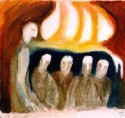
[ The following is related to this week's Torah reading (Yitro). Please read the Torah portion to "find your place" here. ]
01.12.14 (Shevat 11, 5774) "On the first day of the third month after leaving Egypt, the people of Israel came to the desert of Sinai" (Exod. 19:1). The revelation at Mount Sinai is celebrated each year during the festival of Shavuot ("Weeks"), which occurs exactly seven weeks (49 days) after Passover (because of this, Shavuot is sometimes called "Pentecost," meaning "the 50th day"). The 49 day countdown from the day after Passover was later commemorated as the period of "counting the omer." In Jewish tradition, Shavuot is called the "time of the giving of our Torah," the culmination of the Passover deliverance, though it is also the time when the Ruach HaKodesh (Holy Spirit) was poured out to the followers of Yeshua in fulfillment of the New Covenant (Acts 2, Jer. 31:31-33).
Parashat Yitro - יתרו

01.12.14 (Shevat 11, 5774) In our Torah portion this week (Yitro), the Israelites reached the region of Mount Sinai where Moses told them that if they were willing to be God's treasured people (עַם סְגֻלָּה) they would become a "kingdom of priests and a holy nation." The people accepted the invitation and proclaimed, "All that God has spoken, we shall do" (Exod. 19:3-8). A few days later - on the 49th day after the Exodus (i.e., Sivan 6) - the LORD descended amidst thunder, lightning, billowing smoke, fire, and the blast of the heavenly shofar, proclaiming "I AM" and the Ten Commandments (עֲשֶׂרֶת הַדִּבְּרוֹת). Because this vision was so overwhelming, the terrified Israelites began beseeching Moses to be their mediator lest they die before the Presence of God. The portion ends as "the people stood far off, while Moses (alone) drew near to the thick darkness where God was" (Exod. 20:21).
Please see the Summary Page for parashat Yitro for more information about this important Torah reading. You can also download the Shabbat Table Talk for this portion here:
Hope to the LORD...
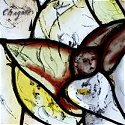
[ Until the Master of the Universe helps, the Master of the Universe will help... ]
01.10.14 (Shevat 9, 5774) An old Jewish prayer, uttered somewhat wistfully, begins, "O Lord, I know that Thou wilt help us; but wilt Thou help us before Thou wilt help us?" It's not always easy to wait for God, especially when we are in pain or anxiety, but we must never, ever, give up; we must never ever, abandon our heart's longing for ultimate healing. Faith excercises hope in the Reality, Substance, and Being (ὑπόστασις) of the Invisible and is made captive to undying hope (Heb. 11:1). Therefore the Spirit cries out: "Hope to the LORD; be strong and strengthen your heart; and (again) hope to the LORD."
קַוֵּה אֶל־יְהוָה חֲזַק וְיַאֲמֵץ לִבֶּךָ
וְקַוֵּה אֶל־יְהוָה
ka·veh · el · Adonai · cha·zak · ve'ya·metz · lib·be·kha,
ve-ka·veh · el · Adonai

"Hope to the LORD; be strong and let your heart be strengthened;
and (again) hope to the LORD."
(Psalm 27:14)

Hebrew Study Card
In this verse, the imperative verb translated "wait" is the Hebrew word kaveh (קַוֵּה), which might better be rendered as "look for with anticipation!" or "hope!" (the same root appears in the Hebrew word for hope, i.e., tikvah: תִּקְוָה). Therefore hope in the Lord and "chazak!" - be strong! (the Septuagint translates chazak as "andridzou" (ἀνδρίζου - act like a man!). Note that the verb ve'ametz is a causal active stem (i.e., Hiphal) in the "jussive mood," which means it is imperative – "command your heart to be strengthened," or "let your heart be made strong!" Make the decision to be strong in the LORD, and the LORD will give you strength to bear your present suffering: "Look to the LORD (קַוֵּה אֶל־יְהוָה) and find hope."
When we put our hope in the LORD, strong in our conviction, we will be given courage to bear whatever may befall us - and this is help indeed during these perilous days! So "hope to the LORD (קַוֵּה אֶל־יְהוָה); be strong and strengthen your heart; and (again) hope to the LORD." There can be no turning to God without genuine hope (תִּקְוָה). Indeed, as the Apostle Paul wrote: "We are saved by hope" (Rom. 8:24).
Shabbat shalom and love to you, friends... Until the Master of the Universe helps, the Master of the Universe will help... Amen. God will help us, and he will help us before we know he helps us! Thank you for sharing the journey of hope with me!
 |
The Taste of Gratitude...
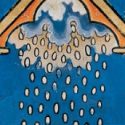
[ The following is related to this week's Torah reading, parashat Beshalach... ]
01.10.14 (Shevat 9, 5774) The LORD said to Moses, "'Look I am going to rain down bread from heaven (לֶחֶם מִן־הַשָּׁמָיִם) for you. The people will go out and gather a portion for that day so that I might test whether they will walk in my Torah (תּוֹרָה) or not" (Exod. 16:4). This miraculous bread was called manna (מָן) because when the people first saw it they asked one other, "mann hu" (מָן הוּא), "what is it?" Although the Torah describes its taste as like "honey cakes" (Exod. 16:31), the midrash says that its taste was a function of a person's sense of gratitude. For those who were thankful for God's care, manna tasted delicious (like a good cookie?), but to those who murmured, it tasted bland and unsatisfying (like stale matzah?). "According to your faith, be it done unto you" (Matt. 9:29).
טַעֲמוּ וּרְאוּ כִּי־טוֹב יְהוָה
אַשְׁרֵי הַגֶּבֶר יֶחֱסֶה־בּוֹ
ta·a·mu · ur·u · ki · tov · Adonai
ash·rei · ha·ge·ver · ye·che·seh · bo

"Oh, taste and see that the LORD is good!
Happy is the man who takes refuge in Him!"
(Psalm 34:8)

Addictions, cravings, lusts, etc., often arise from refusing to be satisfied, by hungering for more than the blessing of the present moment. "My people have committed two evils: they have forsaken me, the fountain of living waters, and hewed out cisterns for themselves, broken cisterns that can hold no water" (Jer. 2:13). The living waters are always present for us, but we will only find them if we open our hearts to the wonder of God in this moment. We must slow down, savor the moment, and see God's hand in everything around us: "Holy, Holy, Holy is the LORD God of Hosts: The whole earth is filled with His glory" (Isa. 6:3). Opening our spiritual eyes will break the cycle of unthinking habit, of "mindless eating," and so on. Ultimately this is another aspect of shema, or listening to your body, your heart, your soul – and especially listening for God's word spoken to your inward being. We can "break the spell" of continual dissatisfaction, of the power of greed, pride, and so on, when we discover that our constant hunger is really a cry for God and His blessing. Our sense of inner emptiness is an invitation to come to the waters and drink life... May God help us to come!
 |
Amalek and Spiritual Warfare...

[ The following is related to this week's Torah reading, parashat Beshalach... ]
01.10.14 (Shevat 9, 5774) In our Torah portion this week (Beshalach) we read how "Amalek" attacked the Israelites after they had miraculously crossed over the sea into a new life of freedom (Exod. 17:8). Spiritually speaking the Amalekites aligned themselves with the wicked Pharaoh of Egypt and therefore they sought to continue the war against God's people. Apparently the Amalekite clan in Canaan was founded by a grandson of Esau (Gen. 36:12,16), though Amalek is also listed as the "first among the nations," a man who even predated the time of Abraham (Num. 24:20, Gen. 14:7). In Augustine's terms, Amalek represents the "City of the World," whereas Israel represents the "City of God."
In Jewish tradition, Amalek represents pure evil, or those who have "given themselves over" to Sitra Achra, the side of impurity. Indeed the name Amalek (עֲמָלֵק) begins with the letter Ayin (symbolizing the eye) and equals 240 in gematria -- the same value for safek (סָפֵק), meaning "doubt," and for rahm (רָם), meaning "haughty." Amalek therefore represents "the evil eye of doubt," or even "the severed eye" (i.e., when you remove Ayin from "Amalek," you are left with malak (מָלָק), a verb that means "to chop off" or to sever). Understood in this way, Amalek represents spiritual blindness acting arrogantly in the world, and therefore the LORD vowed perpetual warfare against Amalek: "The Hand is on God's throne. God shall be at war with Amalek for all generations" (Exod. 17:16).
The Torah reveals that we must "go out and fight" Amalek, which is a call to ongoing spiritual warfare in our lives (Deut. 25:17-19). When Moses raised his hands in battle against the Amalekites, the Israelites prevailed, but if he lowered them, they suffered defeat (Exod. 17:11). Eventually Moses grew weary and needed Aaron and Hur to help him hold his arms steady to ensure victory (Exod. 17:12). Note that the Hebrew word translated "steady" is emunah (אֱמוּנָה), the word for faith... It was Moses' steady faith in God's power that gave Israel the victory over the powers of darkness, just as we lift up our faith in God's power demonstrated at the cross gives us the victory over Satan and his schemes.
For more on what Amalek represents, see the article, "Warfare with Amalek."
 |
Walking in Faith...
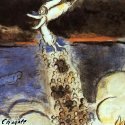
01.10.14 (Shevat 9, 5774) "The LORD said to Moses, "Why do you cry out to me? Tell the people of Israel to go forward" (Exod. 14:15). There are times when enough prayer has been offered and all that's left is to act. "Tell the people to go forward!" Note well that only after the people began walking in faith was Moses instructed to lift up his staff to divide the waters of the sea so they could pass through...
Bitterness for Shalom...
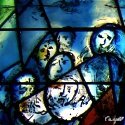
01.09.14 (Shevat 8, 5774) When the Israelites came to Marah, "they could not drink the water because it was bitter" (Exod. 15:23). Note that the Hebrew text allows us to read that it was the Israelites themselves who were bitter – ki marim hem (כִּי מָרִים הֵם) – "for they (i.e., the Israelites) were bitter," and their bitterness made the water seem so as well.... After the people complained, God showed Moses a tree and threw it into the water, making it drinkable. Note that the Hebrew text literally reads, "the LORD taught him a tree" (וַיּוֹרֵהוּ יְהוָה עֵץ), suggesting elon moreh (אֵלוֹן מוֹרֶה), the "teaching tree of Abraham" (Gen. 12:6). The sages say this tree symbolized Torah, the tree of life (etz chaim), which brings happiness to those who take hold of it (Prov. 3:18), though we see Yeshua, the fallen tree that yields mayim chayim - living water - to revive the hearts of mankind...
הִנֵּה לְשָׁלוֹם מַר־לִי מָר
וְאַתָּה חָשַׁקְתָּ נַפְשִׁי מִשַּׁחַת בְּלִי
כִּי הִשְׁלַכְתָּ אַחֲרֵי גֵוְךָ כָּל־חֲטָאָי
hi·nei · le·sha·lom · mar · li · mar
ve·at·tah · cha·shak·ta · naf·shi · mi·sha·chat · be·li
ki · hish·lakh·ta · a·cha·rei · gev·kha · kol · cha·ta·ai

"Behold, it was for my healing that I had great bitterness;
but You in love have delivered my life from the pit of destruction,
for you have cast all my sins behind your back."
(Isa. 38:17)

In this verse note that the term "pit of destruction" (מִשַּׁחַת בְּלִי) might better be understood as the "pit of wearing out," that is, the pit of nothingness, consumption, vanity, or worthlessness (i.e., belial: בְּלִיַּעַל). The idea is that the LORD loves us "from the pit of nothingness." The word "loved" used here (i.e., chashak: חָשַׁק) means to be attached in devotion or affection, to embrace in kindness... God's great love is like that – it descends into the pit of shame and draws us out from it, just as Yeshua went down to the pit for that purpose – to deliver those trapped in throes of death (Psalm 88:4-6; Zech. 9:11, 12; Heb. 13:20, 2 Cor. 5:12, etc.).
Made Captive to Fear...

[ The following is related to this week's Torah reading, parashat Beshalach... ]
01.09.14 (Shevat 8, 5774) In this week's Torah we read: "When the king of Egypt was told that the people had fled, the mind of Pharaoh and his servants was changed toward the people, and they said, "What is this we have done that we have let Israel go from serving us?" (Exod. 14:5). The sages comment that Pharaoh was emboldened because the people were running away from their bondage rather than running toward their freedom, and this fear made them vulnerable to attack. Likewise we may want to escape from troubles that beset us, but if we are not turning to God for life, we are at risk of returning to our slavery once again. If we lose sight of God's love, we are liable to be made captive to fear...
Instead of backing away from hell, turn toward heaven... "Press on toward the goal for the prize of the upward call of God in Yeshua the Messiah" (Phil. 3:14).
Treasure in Frailty...

01.09.14 (Shevat 8, 5774) No one escapes suffering in this life, and therefore it is senseless to pretend to hide or deny our troubles. We are likened to "jars of clay," fragile and easily broken vessels that hold the truth of salvation; we are mere dust held together by the sustaining power and glory of God. Our frailty is intended to reveal God's sufficiency and strength: "But we have this treasure in jars of clay, to show that the surpassing power belongs to God and not to us" (2 Cor. 4:7). In light of this, the only meaningful question is how our woundedness may be used to strengthen others (2 Cor. 1:4). The "surpassing power belongs to God and not to us" means that God keeps us continually dependent upon himself; we have nothing at our own command; God alone is our strength. "For He knows our frame (כִּי־הוּא יָדַע יִצְרֵנוּ); he remembers we are made of clay (זָכוּר כִּי־עָפָר אֲנָחְנוּ)."
Miracle of Exchanged Life

01.08.14 (Shevat 7, 5774) The central commandment of Torah is to love God and others, yet this is precisely the commandment we find impossible to obey. Tragically, when we look within we soon discover we are loveless at heart: "For out of the heart comes evil..." (Mark 7:21). The essence of Torah is to love, to "do good and no evil," but we are inherently selfish, judgmental of others, calloused, and proud.... So how can we do the impossible?
There is a danger of subconsciously regarding our inability to love as the result of being wounded by life in this world rather than seeing it as a result of an inward and lethal condition called "spiritual death." If we are not careful, we will pray that God will show mercy and compassion on that which is to crucified, buried, and taken away. God does not reform our carnal nature but puts it on the cross to be done away, and then he replaces it with a radically new nature based on the Spirit and resurrection life... This great miracle of God is found in union with the Messiah's life. "Live in me and I will live in you," Yeshua says. "As the branch cannot bear fruit by itself, unless it finds life in the vine, neither can you, unless you find life in me... for apart from me you can do nothing" (John 15:4-5). You cannot do the impossible, but with God all things are possible (Mark 10:27).
Therefore we find the ability to love by the miracle of God. As we live in Yeshua, we find life, love, light, truth, healing, beauty, breath, and salvation from the hell of a loveless heart. You must unite yourself with his death, burial, and resurrection: reckon yourself to be immersed into him, death-for-death, life-for-life (Rom. 6:8-11; Col. 3:1-4). "Unless a seed falls to the ground, it abides alone..." Yeshua is the Source of all life, and we find nourishment, strength, and fullness of joy as we connect with his life.
By faith we affirm: I "have been crucified" (a perfect passive verb) with Christ, and it is no longer "I" who live, but Christ who lives in me" (Gal. 2:20). The miracle of the exchanged life comes as we surrender to the truth of the salvation of God performed for us. Yeshua didn't die a painful and bloody death on the cross to save sinful flesh but rather to become sinful flesh in exchange for the sinner who trusts in Him (2 Cor. 5:21). That's the essence of the gospel, the power of God's salvation. On some mysterious level, the exchange of our sin with Messiah's righteousness is "ontological," meaning that it has real being, existence, substance, energy, power, and reality. Therefore we do not attempt to crucify ourselves, or labor to reform our lower nature, but instead accept that we already have been crucified by the agency of the Spirit of God.
 |
Testing and Endurance...

01.07.14 (Shevat 6, 5774) When Paul wrote, "in everything give thanks" (1 Thess. 5:18), he surely foresaw the prospect of suffering. Indeed, it is through "much tribulation" we enter the kingdom of God (Acts 14:22). We do not ask God to insulate us from all troubles, but rather to be given courage to carry on despite whatever tests he permits in our lives. Hence one of our standard blessings is: בָּרוּךְ אַתָּה יהוה הַנּוֹתֵּן לַיָּעֵף כּחַ / barukh attah Adonai ha'noten lai'ya'ef koach: "Blessed are You, LORD, who gives strength to the weak." The Lord never "breaks" before offering His blessing (Mark 6:41), and personal brokenness is the means of instilling His character within us (Gal. 2:20). Indeed in our Torah we read: "I am the LORD your Healer" (Exod. 15:26). The sages comment that just as someone who wishes to repair an object will need to take it apart, so with God. When we seem to be broken in pieces we cry out for deliverance and healing, but inwardly we are being conformed to the deeper image of Messiah. Like Jacob, we wrestle with God to know our wound as well as our healing. As it is written in our Scriptures: "So we do not lose heart. Though our outer self is wasting away (διαφθείρεται), our inner self is being renewed day by day. For this light momentary affliction (θλῖψις) is preparing for us an eternal weight of glory beyond all comparison, as we look not to the things that are seen but to the things that are unseen. For the things that are seen are transient, but the things that are unseen are eternal" (2 Cor. 4:16-19). As our Scriptures also affirm, God is "the Father of Mercies and God of all comfort" (אַב הָרַחֲמִים וֵאלהֵי כָּל־נֶחָמָה). The Lord "comforts us" (literally, "calls us to His side," παρακαλέω) in our afflictions so that we may be able to comfort those who are afflicted with the same comfort with which we ourselves are comforted by God (2 Cor. 1:3-4).
 |
Manna from Heaven...

[ The following is related to this week's Torah reading, parashat Beshalach... ]
01.07.14 (Shevat 6, 5774) A verse from our Torah portion this week (Exod. 16:16) contains all the letters of the Hebrew alphabet (i.e., aleph (א), bet (בּ), gimmel (ג), etc.). The special verse reads, "This is what the LORD has commanded: 'Gather of it, each one of you, as much as he can eat. You shall each take an omer (עמֶר), according to the number of the persons that each of you has in his tent.'" Since this refers to the manna the Israelites were to collect for their daily bread, and this verse contains all the letters of the alphabet, we may poetically infer that if we immerse ourselves in the Scriptures, "from Aleph (א) to Tav (ת)," God will provide us with the "daily bread" (לֶחֶם חֻקֵּנוּ) we need, just as He did when the bread from heaven (לֶחֶם מִן־הַשָּׁמָיִם) was miraculously given to feed the Israelites in the desert. Therefore Yeshua, who is the Aleph and Tav, taught us to pray, "Give us this day our daily bread," which surely refers to the spiritual food (i.e., encouragement, hope, life) that we receive from the Word of Life (Deut. 8:3; Matt. 4:4).
Yeshua taught us: "Don't be anxious about tomorrow, for tomorrow has its own troubles. Live one day at a time" (Matt. 6:34). It makes no sense to worry about the future if the LORD is the Good Shepherd who tenderly watches over your way (Psalm 23:1). Every day we are given daily bread, but we must remember that manna could not be stored up without becoming rotten (Exod. 16:20).
Isn't it amazing how studying the Hebrew text reveals further insights into the Scriptures? And may you rest in the promise: "My God will supply every need of yours - "from A to Z" - according to his riches in glory in Yeshua the Messiah" (Phil. 4:19). He is lechem ha'chaim - the Living Bread from heaven (John 6:51)!
 |
Inner Exile and Unbelief...

01.07.14 (Shevat 6, 5774) It has been said that it was easier for the LORD to get Israel out of exile than it was for Him to get the exile out of Israel... And so it is for our spiritual journey as well. Therefore we are admonished by the Spirit: "Take care, brothers, lest there be in any of you an evil, unbelieving heart, leading you to fall away from the living God. But exhort one another every day, as long as it is called "today," that none of you may be hardened by the deceitfulness of sin" (Heb. 3:13-14). This is the hour, the day of salvation: "today, if you hear His voice, do not harden your hearts..."
Believing and Seeing...
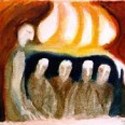
01.07.14 (Shevat 6, 5774) Despite all the miracles and wonders performed on behalf of the Israelites, the people soon seemed to "forget" about their miraculous redemption. Indeed, it was just a few days after the awe-inspiring deliverance from Egypt that the people began to murmur, complain, and "kvetch" (Exod. 16:1-3). Such discontent warns us that miracles are never enough to sustain faith: Seeing isn't believing, but rather the other way around. This explains why those church groups that emphasis "signs and wonders" often contain so many exhausted people. Miracles are insufficient for faith; people get excited about them while they occur, but they soon forget them and return to a state of desperation and despair. Necessarily the cycle must repeat itself, with ever-increasing claims of the miraculous, in order to keep the movement going. In light of this, it is wise to regard the desire for "signs and wonders" as a counterfeit of the real need to surrender and serve God. After all, to truly love the LORD with all your heart, with all your soul, and with all your strength - now that is a miracle of a greater kind than that of splitting the Sea...
For more on this, see "Believing and Seeing: Further Thoughts on Parashat Beshalach."
 |
Celebrate God's Love...

01.07.14 (Shevat 6, 5774) Yeshua said the kingdom of heaven could be likened to a king who gave a wedding feast for his beloved son. Those who were invited made one excuse after another why they could not attend, so the disappointed king then instructed his servants to "go out quickly to the streets and lanes of the city, and bring in the poor and crippled and blind and lame... and compel everyone you find to come in, so my house may be filled." God loves people and implores them to personally join in the celebration of his love, to partake of the marriage feast of Lamb (Rev. 19:7). But note this means that we are to bring all the lame, broken, and fearful parts of ourselves to the banqueting table of God's love... The courage to "come to the table" only comes from a sense of being welcomed and accepted, that is, by trusting that you are truly made safe by God's love....
Perhaps we are afraid of God's unconditional love for us because we've experienced rejection or abandonment in our lives. We silently wonder, "What if God lets me down and I get hurt again?" We prefer the "comfort" of our fears to the risk of letting go and trusting in God's love for us, just as we are... This fear shows up in a lot of ways, for instance, by thinking we have to be "religious," or by attempting to clean ourselves up before we can accept God's love, On the other hand, we might entertain a sense of false humility that considers our sin to be too much for God to bear, and thereby excuse ourselves from the celebration.... In every case the problem is the need to control. We want to define the terms of love before we will let go and trust. We are offended at the idea of divine grace because we want to esteem ourselves as worthy of God's love based on who we are, rather than on who God is... The message of God's love, however, is scandalous, precisely because it gives wholeheartedly to those who are undeserving and unworthy, to the tax collectors, the sinners, the crippled and blind and lame...
But there is another aspect to this invitation we should consider, too. Yeshua repeatedly used this parable in his teaching (see, for example, Luke 14:16-24, Matt. 22:1-14). In the Matthew account, the only person rejected from the celebration was the one who attended without the royally provided "wedding garment," indicating a person who came apart from trusting in God's "imputed righteousness" freely bestowed in Messiah... The wedding feast is for all to come, but those who come clothed in their own "robes of righteousness" will find nothing to celebrate, after all (Isa. 64:6).
"And he said to him (i.e., to the one without the garment provided by the king), 'Friend (ἑταῖρε - a word of politeness but without warmth), how did you get in here without a wedding garment?' And he was speechless" (Matt. 22:12). Indeed, no right word can be uttered against the reality and truth of God's love in Messiah. "How did you come in here, apart from being robed in the righteousness of God that comes through faith in the work of Messiah?" This presumptuous guest came his own way, still wearing the trappings of the old nature, still at enmity with the Spirit of truth, still wearing some "self-styled" religious costume, thereby refusing the principle of the "exchanged life" given in Messiah. But like Aaron's sons Nadab and Abihu, this man was exposed by his own presumption before the presence of the King himself, and indeed, the moral of the story is that those who pretend they can come to God apart from the saving love of Yeshua will find themselves (chas v'chalila) cast outside, weeping in outer darkness (Matt. 22:13).
 |
The Longer Road Home...
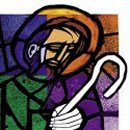
01.07.14 (Shevat 6, 5774) God chose to take the people along the "longer road" to the promised land, just as we find ourselves still awaiting our redemption in the world to come. And like the Israelites, we must be on guard, since when things get difficult, our tendency is to go back to what is familiar, even if it is painful. Thank God we have a Good Shepherd who teaches us and guides us in the way to go: "And though the Lord give you the bread of adversity and the water of affliction, yet your Teacher (מוֹרֶה) will not hide himself anymore, but your eyes shall see your Teacher. Your ears will hear a word behind you, saying: 'This is the way; follow it,' when you turn to the right or to the left" (Isa. 30:20-21).
וְאָזְנֶיךָ תִּשְׁמַעְנָה דָבָר מֵאַחֲרֶיךָ לֵאמר
זֶה הַדֶּרֶךְ לְכוּ בוֹ
כִּי תַאֲמִינוּ וְכִי תַשְׂמְאִילוּ
ve·oz·ne·kha · tish·ma·nah · da·var · me·a·cha·re·kha · le·mor:
zeh · ha·de·rekh · le·khu · vo
ki · ta·a·mi·nu · ve·khi · tas·me·i·lu

"Your ears will hear a word behind you saying:
'This is the way; follow it,'
when you turn to the right or to the left."
(Isa. 30:21)

What a beautiful image of our LORD as our Teacher and Good Shepherd, who guides us in the paths of life and delivers us from "right-hand and left-hand errors." And may God keep us upon the path, free from the seductions of the tempter who wants to distract our souls and lead us into fruitless byways and trouble. May we be given grace to behold His face, even in the midst of adversity or affliction, learning from Him the way to go... Amen.
Stepping out in Faith...

[ The following is related to this week's Torah reading, parashat Beshalach... ]
01.06.14 (Shevat 5, 5774) According to midrash, when Moses lifted his staff to divide the sea, at first nothing happened. The people waited anxiously at the seashore, wondering what to do. Finally, Nachshon ben Aminadav, a descendant of Judah (Num. 1:7), took action by stepping into the water and the winds began blowing to divide the waters (Shemot Rabbah). The miracle of kriat yam suf - the splitting of the sea - therefore resulted because someone took a step of faith before God revealed His power. "And the people of Israel went into the midst of the sea on dry ground, the waters being a wall (חוֹמָה) to them on their right hand and on their left" (Exod. 14:22). They marched across the sea all that night (i.e., Nisan 21), under the light of the Shekhinah Glory...
The Talmud says it is more difficult for God to make a marriage than to split the sea. They reason this way because each person needs to take individual action to trust the other. Likewise with God. It is more difficult for God to get us to be in a genuine, trusting relationship with Him than it is for Him to split a sea. Of course the problem is not with God, who is the perfect "husband," but with our adulterous inner nature. It took the LORD a year to deliver Israel from Egypt, but it took Him 40 years to teach Israel to trust in His promises of love. God always awaits our teshuvah - our "answer" - to His invitation before He will reveal more to us. As Yeshua once said to his followers, "I still have many things to say to you, but you cannot bear them now" (John 16:12). Some things about God can only be known by stepping out in faith and surrendering ourselves entirely to Him..
For more on this subject, see "Stepping out in Faith..."
 |
The Baptism into Moses...

[ The following concerns this week's Torah reading (Beshalach) and the Exodus from Egypt... ]
01.06.14 (Shevat 5, 5774) The Apostle Paul likened the crossing of the sea as a metaphor of baptism: "All were baptized into Moses in the cloud and in the sea" (1 Cor. 10:1-2,11). In the New Testament, baptism symbolizes our identification with Yeshua's death, burial, and resurrection (Col. 2:12; Rom. 6:3-5). The Israelites were facing death and were therefore at the "end of themselves." They had no other appeal or hope than God's gracious intervention on their behalf (i.e., salvation). Still, they needed to act and move forward. After they took the step of faith, they could see the Shekhinah Glory lighting up the way of deliverance, though this meant being "buried" within the midst of the sea. Their earlier fear of death was replaced with a song of God's great deliverance (shirat hayam). The other side of the sea represents new life in the Messiah, the life that comes from above, by the power and agency of the Holy Spirit... The Israelites died to their old life, were symbolically buried in the waters, but arose to new freedom by the grace and power of God...
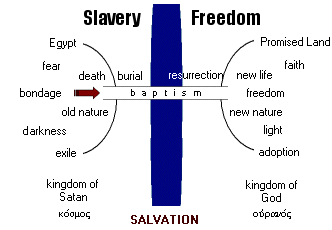 |
Note that this "baptism into Moses" (1 Cor. 10:1-2) was not a water baptism, since even though the people went through the water, they crossed over the sea on dry ground... No, it was a baptism or "immersion" into the Shekhinah Cloud, an identification with Moses and his mission (Heb. 11:29). At Sinai Moses would later ascend into the midst of that Cloud to behold the vision of the altar of Messiah (i.e., the Mishkan, or Tabernacle). Ultimately baptism is about identifying with the redemptive mission of God through Yeshua our Savior. The meaning of baptism is to be immersed by the Ruach HaKodesh (Holy Spirit) to be made part of the greater redemptive mission of God's people.
Note: In light of this, we should be wary of those who insist that "baptism" refers to some sort of ritual act rather than being spiritually identified with God's Spirit and truth...
Shabbat Shirah - שַׁבַּת שִׁירָה

[ The following concerns this week's Torah reading (Beshalach) and the crossing of the sea... ]
01.05.14 (Shevat 4, 5774) The central event of this week's Torah portion is how the LORD split the waters of the sea to make a path for His people to escape from Egypt. This event is commemorated in the great "Song the Sea" (i.e., Shirat Hayam: שִׁירַת הַיָּם), a hymn praising God for His deliverance (see Exod. 15:1-21). Because of its critical significance for the Jewish people, the Sabbath on which this song is chanted is called Shabbat Shirah ("Sabbath of the Song"), and the custom is for all the congregation to rise while it is recited...
The Torah states that when the Israelites entered the sea, it became dry land, with the water as "a wall (חוֹמָה) to their right and to their left" (Exod. 14:29). To commemorate this miracle, the Hebrew text of the "Song of the Sea" is stylized to resemble a "wavy wall," with the words written in alternating "blocks" to suggest a wave of water:
 |
The soferim count exactly 198 words in this song, which is the numerical value for the word tzchok (צחק), a word that means "laughter" and is the word used to describe Sarah's response when she finally gave birth to Isaac (Gen. 21:6). According to Rabbi Bachya, the laughter in Isaac's name comes from Abraham's joy (Gen. 17:17). The joy of Isaac's birth, then, is linked with the "birth" of the nation of Israel at the time of the Exodus, just as his symbolic death during the Akedah represents Israel's rebirth...
Because it marks deliverance, the Song of the Sea (i.e., the Song of Moses) as well as the "Song of the Lamb" will be sung in the world to come (Rev. 15:3). For more on this, see "The Song of the Sea: Further Thoughts on Beshalach."
Parashat Beshalach - בשלח

[ In our Torah portion this week the waters of the Red Sea divide to make a path for the Israelites, a miracle that symbolized newness of life as God's liberated people... ]
01.05.14 (Shevat 4, 5774) Last week's Torah portion (parashat Bo) described how the Israelites were finally released from their bondage in Egypt after God delivered the decisive plague during the time of Passover. In this week's portion (Beshalach), the Israelites began their journey home, after 430 years of exile. Instead of leading them along a direct route to the Promised Land, however, God directed them south, toward the desert, where the Glory of God appeared as a Pillar of Cloud by day and as a Pillar of Fire by night to lead them on their way. When Pharaoh heard that the Israelites were at the border of the desert, however, he perversely decided to pursue them and bring them back to Egypt. God then redirected the Israelites to camp near the edge of the Sea of Reeds, where the Egyptian army finally caught up with them. Dramatically, the Israelites were caught between the sea on one side, and Pharaoh's army on the other...
The terrified people then began to blame Moses for their predicament. Moses reassured them of God's final deliverance and raised his staff to miraculously divide the waters of the sea. All that night the Shekhinah Glory enshrouded the Egyptian army but gave light to Israel as the people crossed through the sea on dry ground. Just before dawn, the dark pillar of cloud that veiled the Egyptian army lifted, and the soldiers immediately rushed after the Israelites into pathway of the sea. God then told Moses to lift his staff again so that the waters would overwhelm the Egyptians with their chariots and horsemen. By the time dawn arrived, the Israelites saw the dead bodies of Pharaoh's army lining the seashore.
 |
Shabbat Shirah - שַׁבַּת שִׁירָה
Because of the critical significance of the miracle of crossing the sea, this Sabbath is called Shabbat Shirah, the "Sabbath of the Song," because it includes the song of deliverance sung by Moses and Miriam after the people made safe passage to new life. The "Song of the Sea" (i.e., shirah hayam) begins, "The Lord is my strength and song, and he is become my salvation" / עָזִּי וְזִמְרָת יָהּ וַיְהִי־לִי לִישׁוּעָה (Exod. 15:2, cp. Isa. 12:2). For Orthodox Jews, singing Shirat Hayam every day is thought to fulfill the biblical commandment to "remember the day of your departure from the land of Egypt as long as you live" (Deut. 16:3). Note that Shirat Hayam is also sung on the 7th day of Passover, as a memorial of the deliverance by God through the waters of the Sea of Reeds.
Following their jubilation, the narrative resumes as God led the people away from the sea, into the desert of Sin (מִדְבַּר־סִין), a desolate region about midway to Mount Sinai. After traveling three days without finding any water, however, the people complained and God provided them with fresh water at Marah. Awhile later, the matzah the people had brought with them ran out and God tested their obedience by giving them "bread from heaven" (i.e., manna). The portion ends with the Amalekites' surprise attack of Israel at Rephidim, near Mount Sinai, and the introduction of Joshua as the leader of the army of Israel.
Note: Please see the Summary Page for parashat Beshalach for more information. You can also download the Shabbat Table Talk for this Torah portion here:
Inner Reconciliation...

01.03.14 (Shevat 2, 5774) "You shall love the stranger as yourself" (Lev. 19:34). This mitzvah applies not only to someone whom we regard as an "outsider," but more radically to the "stranger within ourselves," that is, to those aspects of ourselves we censor, deny, or reject. Like the prodigal son, we have to "come to ourselves" to return home (Luke 15:17), yet we can't know that we are unconditionally loved until we venture complete disclosure. That is the great risk of trusting in God's love for your soul. Those parts of ourselves that we "hide" need to be brought to the light, healed, and reconciled. After all, if we don't love and accept ourselves, then how can we hope to love and accept others? Dear Lord, deliver us from self-hatred, in the Name and passion of your love...
Shabbat Shalom, dear friends... and may we 'find ourselves' as God's beloved children.
The Great Lamb of God...
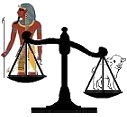
[ The following is related to this week's Torah reading (Bo) and the great Exodus from Egypt... ]
01.03.14 (Shevat 2, 5774) Though God instructed each household to select its own defect-free lamb for the family Passover, the Torah refers to "the" Lamb of God, as if there was only one: "You shall keep it [i.e., the Passover lamb] until the fourteenth day of this month, when the whole assembly of the congregation of Israel shall slaughter him (אתוֹ) at twilight (Exod. 12:6). Note that the direct object "him" (i.e., oto) can be read as Aleph-Tav (את) combined with the letter Vav (ו), signifying the Son of Man who is First and Last... Indeed there is only one "Lamb of God" that takes away the sins of the world, and that is our Savior, Yeshua the Messiah...
רָאוּי הַשֶּׂה הַטָּבוּחַ לְקַבֵּל גְבוּרָה
עשֶׁר וְחָכְמָה וְכּחַ וִיקַר וְכָבוֹד וּבְרָכָה
ra·uy · ha·seh · ha·ta·vu·ach · le·ka·bel · ge·vu·rah
o·sher · ve·chokh·mah · ve·ko·ach · vi·kar · ve·kha·vod · uv·ra·kha

"Worthy is the Lamb who was slain, to receive power and wealth and wisdom
and might and honor and glory and blessing"
(Rev. 5:12)
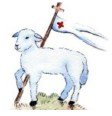
Hebrew Study Card
God My Salvation...

01.03.14 (Shevat 2, 5774) If you are having a tough day today, or if you feel oppressed, lonely, or heavy of heart, let me encourage you to praise God anyway... Offering thanks to the LORD is a powerful weapon for announcing God's triumph over the darkness of the present hour (2 Cor. 10:4). Indeed, the Lord is "enthroned" by the praises (תְּהִלּוֹת) of His people (Psalm 22:3). Therefore give voice to your hope and confidently affirm: "Behold, God is my salvation (i.e., my yeshua, my "Jesus"); I will trust, and will not be afraid; for the LORD God is my strength and my song, and he has become my salvation" (Isa. 12:2).
הִנֵּה אֵל יְשׁוּעָתִי אֶבְטַח וְלא אֶפְחָד
כִּי־עָזִּי וְזִמְרָת יָהּ יְהוָה
וַיְהִי־לִי לִישׁוּעָה
hi·nei · el · ye·shu·a·ti · ev·tach · ve·lo ·ef·chad,
ki · o·zi · ve·zim·rat · Yah · Adonai
vai·hi · li · li·shu·ah

"Behold, God is my salvation; I will trust, and will not be afraid;
for the LORD God (יָהּ יְהוָה) is my strength and my song,
and he has become my salvation."
(Isaiah 12:2)

Download Study Card
Therefore "do not be grieved (even over yourself), for the joy of the LORD is your strength" (Neh. 8:10). Affirming the love, goodness, faithfulness, compassion, and salvation of God is a powerful way to defeat the enemy of our souls, who regularly seeks to discourage us. King David constantly asked God to help him in his spiritual struggles. "Though I walk in the midst of trouble (בְּקֶרֶב צָרָה), you preserve my life; you stretch out your hand against the wrath of my enemies, and your right hand delivers me" (Psalm 138:7). "For the enemy has pursued my soul; he has crushed my life to the ground; he has made me sit in darkness like those long dead. Therefore my spirit faints within me; my heart within me is appalled" (Psalm 143:2-3). Though we must fight through the stubborn darkness and yet endure ourselves, "the LORD is near to the brokenhearted and saves the crushed in spirit (Psalm 34:18). Indeed, the Lord God is far greater than your heart's sin and will one day entirely deliver you of sin's effect and influence.
Behold the goodness and kindness of our God! Where it is written: "Know Him in all your ways" (Prov. 3:6), this of course includes the way of your struggles and the way of your transgressions... Acknowledge these ways before Him, too, and trust that God will help you overcome fear and depart from your sin (Prov. 28:13). As it is said, "Because he is devoted to Me I will deliver him; I will keep him safe, for he knows My Name. When he calls to Me, I will answer him; I will be with him in trouble; I will rescue him and honor him. With long life I will satisfy him and show him My salvation" (Psalm 91:14-16).
 |
Pursued by His Love...

01.03.14 (Shevat 2, 5774) Where it is written, "Surely goodness and mercy (טוֹב וָחֶסֶד) shall follow me all the days of my life" (Psalm 23:6), the Hebrew verb translated "shall follow me" (i.e., יִרְדְּפוּנִי) comes from a root (i.e., radaf: רָדַף) that means to "to pursue" or to "chase down," as a hunter tracks his prey. King David was sure that God's lovingkindness would "hound" him as he made his way through this world - even in the dark places, even in "the valley of the shadow of death" (בְּגֵיא צַלְמָוֶת) - for even there God's Presence would comfort him and direct his steps... Praise God we have a Good Shepherd who meets all our needs and who pursues us as we walk our way through this world.
אַךְ טוֹב וָחֶסֶד יִרְדְּפוּנִי כָּל־יְמֵי חַיָּי
וְשַׁבְתִּי בְּבֵית־יְהוָה לְארֶךְ יָמִים
akh · tov · va·che·sed · yir·de·fu·ni · kol · ye·mei · chai·yai
ve·shav·ti · be·vet-Adonai · le·o·rekh · ya·mim

"Surely goodness and mercy shall follow me all the days of my life,
and I shall dwell in the house of the LORD forever."
(Psalm 23:6)

Hebrew Study Card
Yeshua is the Good Shepherd (הָרעֶה הַטּוֹב) who drives away the inner darkness, protects us on our journey, and infallibly brings us into the land of God's righteousness: "And I will lead the blind in a way that they do not know, in paths that they have not known I will guide them. I will make dark places before them turn to light, and perverse things into uprightness. These things I will do, and I will not forsake them" (Isa. 42:16).
"The wounds of Jesus are not signs that suffering is good, but are signs that you are worth suffering for; they are the wounds of a brave warrior bloodied in the fight to free your soul" (Robert Moris). Amen. The blood of Yeshua cleanses you from sin because it represents the passion of God's heart for you... It is the expression of God's "at-one-ment" with you. The Lord is with you, even in the darkest places… "May your love, O LORD, be upon us, as we hope in You" (Psalm 33:22).
Personal Update: The kids have the stomach flu over here and I have been experiencing technical difficulties with the site recently. Your prayers for us are appreciated. Thank you!
 |
The Limping Messiah...

[ The following is related to this week's Torah reading, parashat Bo.... ]
01.02.14 (Shevat 1, 5774) The word "Passover" comes from pasach (פָּסַח), a verb that means to "pass over," though it also can mean "to limp," recalling the "heel of Messiah" that would be bruised in the battle for our deliverance (Gen. 3:15). This connection may be discovered when studying the semantic range of the root pasach throughout the Hebrew Scriptures. For instance, the related participle pise'ach (פִּסֵחַ) means "lame" or "crippled" (for example, see Lev. 21:18; Deut. 15:21; 2 Sam. 9:13, Mal. 1:8, etc.), while there are several uses of the verb pasach that explicitly mean to "limp" or "be lame." For example, in 2 Sam. 4:4 it says: "and he (Mephibosheth) fell and 'became lame" (וַיִּפָּסֵחַ); in 1 Kings 18:21, we read: "how long will you limp (פּסְחִים) between two opinions?" and in 1 Kings 18:26 it is written: "and they (the priests of Baal) 'limped upon the altar" (וַיְפַסְּחוּ עַל־הַמִּזְבֵּחַ) in a pagan ritual dance. In other words there is a connection between Passover and becoming wounded, and this alludes to the Savior whose heel was bruised during the battle for our deliverance. Yeshua is "the Lamb of God who takes away the sins of the world" (John 1:29).
For more on this subject, see "The Gospel in the Garden."
 |
Torah of Humility...

01.01.14 (Tevet 29, 5774) Rabbi Sussya once said: "There are five verses in the bible that constitute the essence of the Torah. These verses begin in Hebrew with one of these letters: Tav (תּ), Shin (שׁ), Vav (ו), Bet (בּ), and Hey (ה), which form the word for repentance, "teshuvah" (תְּשׁובָה). The five verses are 1) Tamim tiheyeh (תָּמִים תִּהְיֶה): "Be wholehearted before God" (Deut. 18:13); 2) Shiviti Adonai (שִׁוִּיתִי יְהוָה): "I have set the LORD always before me" (Psalm 16:8); 3) Va'ahavta lere'akha (וְאָהַבְתָּ לְרֵעֲךָ): "Love your neighbor as yourself" (Lev. 19:18); 4) Bekhol derakekha (בְּכָל־דְּרָכֶיךָ): "In all your ways know Him" (Prov. 3:6); and 5) Higid lekha (הִגִּיד לְךָ): "Walk humbly with your God" (Micah 6:8). In other words, the way of teshuvah, of answering God's call for you to return to Him, is to sincerely set the LORD before you, to love others, and to walk out your days in heartfelt gratitude.
הִגִּיד לְךָ אָדָם מַה־טּוֹב
וּמָה־יְהוָה דּוֹרֵשׁ מִמְּךָ
כִּי אִם־עֲשׂוֹת מִשְׁפָּט וְאַהֲבַת חֶסֶד
וְהַצְנֵעַ לֶכֶת עִם־אֱלהֶיךָ
hig·gid · le·kha · a·dam · mah · tov
u'mah · Adonai · do·resh · mi·me·kha
ki · im · a·sot · mish·pat · ve·a·ha·vat · che·sed
ve·hatz·ne·a · le·chet · im · e·lo·hey·kha

"He has told you, O man, what is good, and what the LORD requires of you:
Only to do justice, and to love kindness, and to walk modestly with your God"
(Micah 6:8)

Hebrew Study Card
In other words, the Hebrew word "teshuvah" (תְּשׁוּבָה) can be read as an acronym that stands for being wholehearted (tamim), practicing the Divine Presence (shiviti), learning to love (va'ahavta), knowing God in all things (bekhol), and walking in humility (higid).
It is interesting that in Paul's description of love (ἀγάπη) given in 1 Cor. 13, he twice states that we "know in part" as we await the "face-to-face" reality to come. Paul likens the need to have "all the answers" in this world to being childish: "When I was a child, I spoke like a child, I thought like a child, I reasoned like a child. When I became a man, I gave up childish ways. For now we see in a mirror darkly, but then face to face. Now I know in part; then I shall know fully..." (1 Cor. 13:9-12). The way of love is tolerant of others, respectful of each person's "process" of spiritual understanding, and deeply humble. Each of us must learn to walk by faith, not by sight - by hearing the Word of God and heeding what the Spirit of God is saying to the heart... But now we "see through a mirror darkly," which literally means "in a riddle" (ἐν αἰνίγματι). A riddle is an analogy given through some resemblance to the truth, though quite often the correspondences are obscure. Hence, "seeing through a mirror darkly" means perceiving imperfectly, looking "through" something else instead of directly apprehending reality. This is contrasted with "face to face" (פָּנִים אֶל־פָּנִים) revelation in the world to come, when our knowledge will be clear and distinct, and the truth of God will no longer be hidden. Now we know in part, but then shall we know in whole. Therefore walk in grace and keep hope, for through hope we are saved (Rom. 8:24). "Now abides faith, hope, and love - these three; but the greatest of these is love" (1 Cor.13:13).
 |
Forgiveness and Love...

01.01.14 (Tevet 29, 5774) Yeshua said, "To whom little is forgiven, the same loves little" (Luke 7:47). Do you see the connection between consciousness of your acceptance - trusting that you are beloved by God - and your own ability to express love? The self-righteous do not feel the depth of their sin nor comprehend their great need. Their prayer is always, "Thank you, God, that I am not like other men" (Luke 18:11). To them "little is forgiven" and therefore they love little. To the heart-shattered sinner, on the other hand, to the one who knows the depth of her sin and her terrible need for deliverance, "much is forgiven" - and therefore she loves much. Yeshua teaches us that love sees past moral failures and extends kindness and healing to the one wounded by sin, as it says: "love covers over all transgressions" - עַל כָּל־פְּשָׁעִים תְּכַסֶּה אַהֲבָה (Prov. 10:12; 1 Pet. 4:8).
בָּרֲכִי נַפְשִׁי אֶת־יְהוָה
וְכָל־קְרָבַי אֶת־שֵׁם קָדְשׁוֹ
ba·ra·khi · naf·shi · et · Adonai
ve·khol · ke·ra·vai · et · shem · kod·sho

"Bless the LORD, O my soul,
and all that is within me, bless his holy name.
(Psalm 103:1)

Hebrew Study Card
It is interesting to note that the word translated "blessed" (barukh) is related to the Hebrew word for "knee" (berekh), as is the word for "blessing" (b'rakha), thus implying an association between humbling ourselves (i.e., kneeling before God in recognition of His blessedness) and receiving personal blessing from Him. Indeed, "Blessed be the God and Father of our Lord Yeshua the Messiah, who hath blessed us with all spiritual blessings in heavenly places in Messiah Jesus" (Eph.1:3).
To a Good New Year...
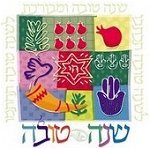
01.01.14 (Tevet 29, 5774) L'Shanah tovah, "to a good year," friends! Let's thank the Lord for sustaining us to reach this season by reciting the traditional Shehecheyanu blessing: "Blessed are You, Lord our God, Master of the universe, who has kept us alive and sustained us and has brought us to this time."
בָּרוּךְ אַתָּה יהוה אֱלהֵנוּ מֶלֶךְ הָעוֹלָם
שֶׁהֶחֱיָנוּ וְקִיְּמָנוּ וְהִגִּיעָנוּ לַזְּמַן הַזֶּה
ba·rukh at·tah Adonai E·lo·hei·nu me·lekh ha·o·lam
she·he·che·ya·nu ve·ki·ye·ma·nu ve·hig·gi·a·nu la·ze·man ha·zeh

"Blessed are You, LORD our God, Master of the Universe,
who has kept us alive and sustained us and brought us to this time."

Hebrew Study Card
Moreover, while it is traditional to recite the following prayer during Rosh Hashanah, for the sake of "derekh eretz" we may recite it during the secular New Year as well:
יְהִי רָצוֹן מִלְּפָנֶיךָ יהוה אֱלהֵינוּ
וֵאלהֵי אֲבוֹתֵינוּ
שֶׁתְּחַדֵּשׁ עָלֵינוּ שָׁנָה טוֹבָה וּמְתוּקָה
בַּאֲדנֵינוּ יֵשׁוּעַ הַמָּשִׁיחַ אמן
ye·hi · ra·tzon · mil·fa·ne·kha, · Adonai · E·lo·hei·nu
ve·lo·hei · a·vo·tei·nu,
she·te·cha·desh · a·lei·nu · sha·nah · to·vah · u·me·tu·kah
ba·A·do·nei·nu · Ye·shu·a · ha·Ma·shi·ach [a·men]

"May it be your will, LORD our God
and God of our fathers,
that you renew for us a good and sweet year
in our Lord Yeshua the Messiah." [Amen]

Hebrew Study Card
|




































































































